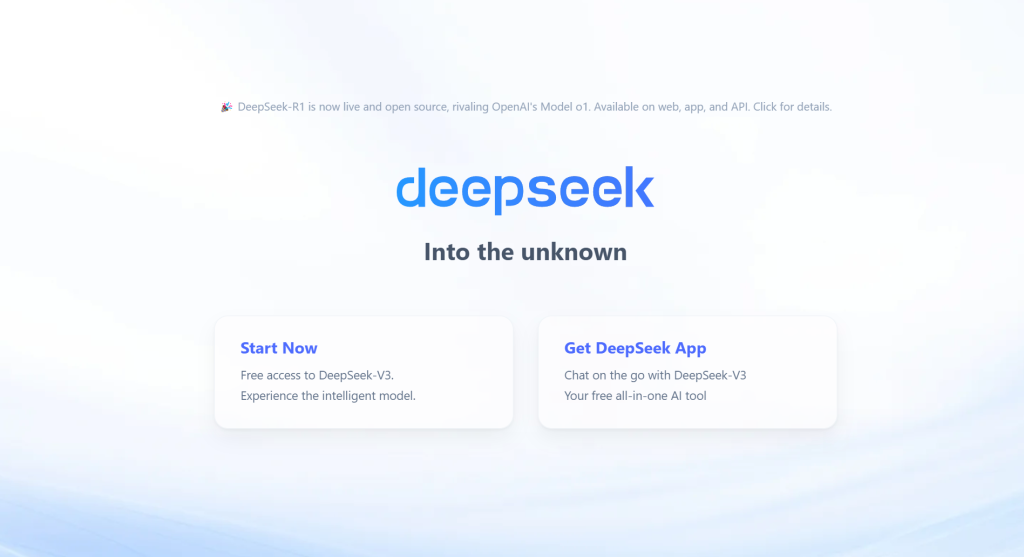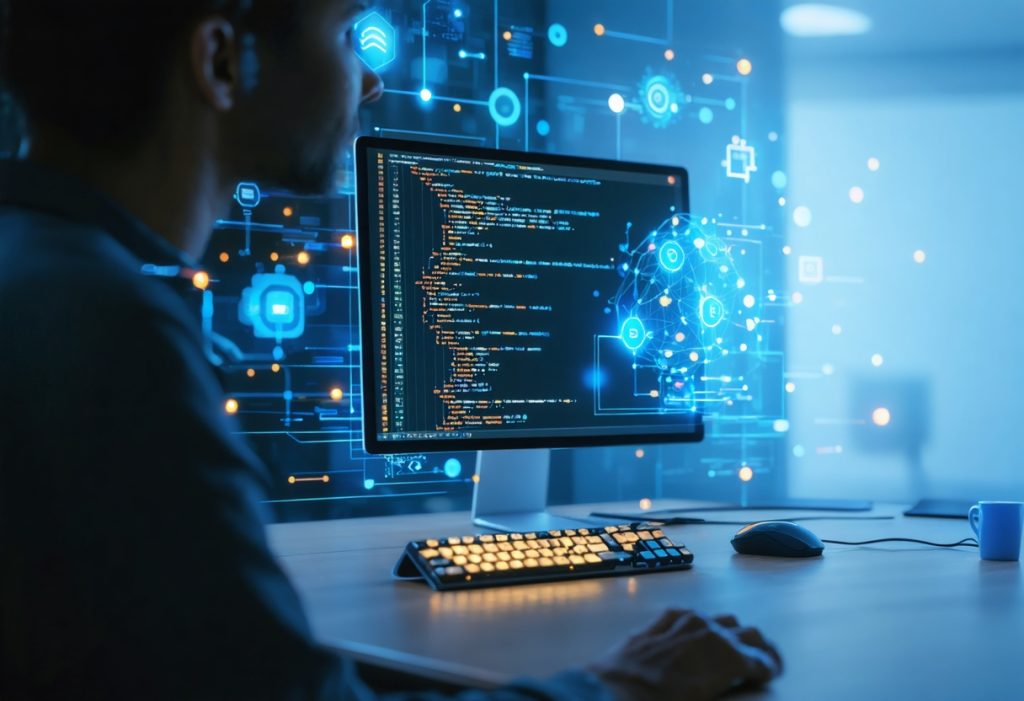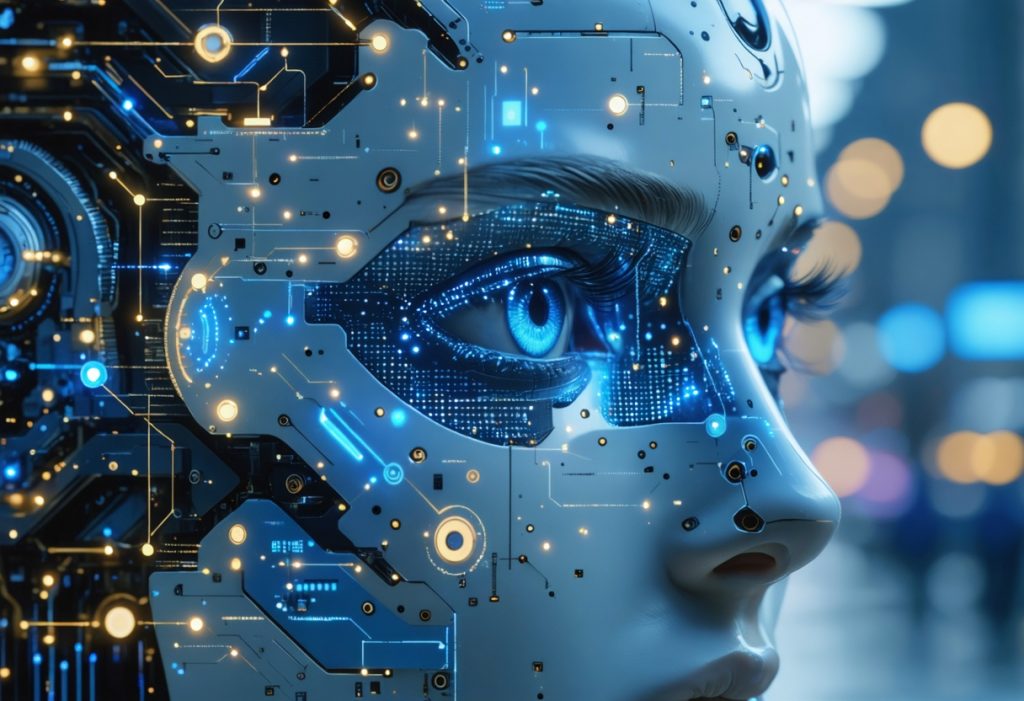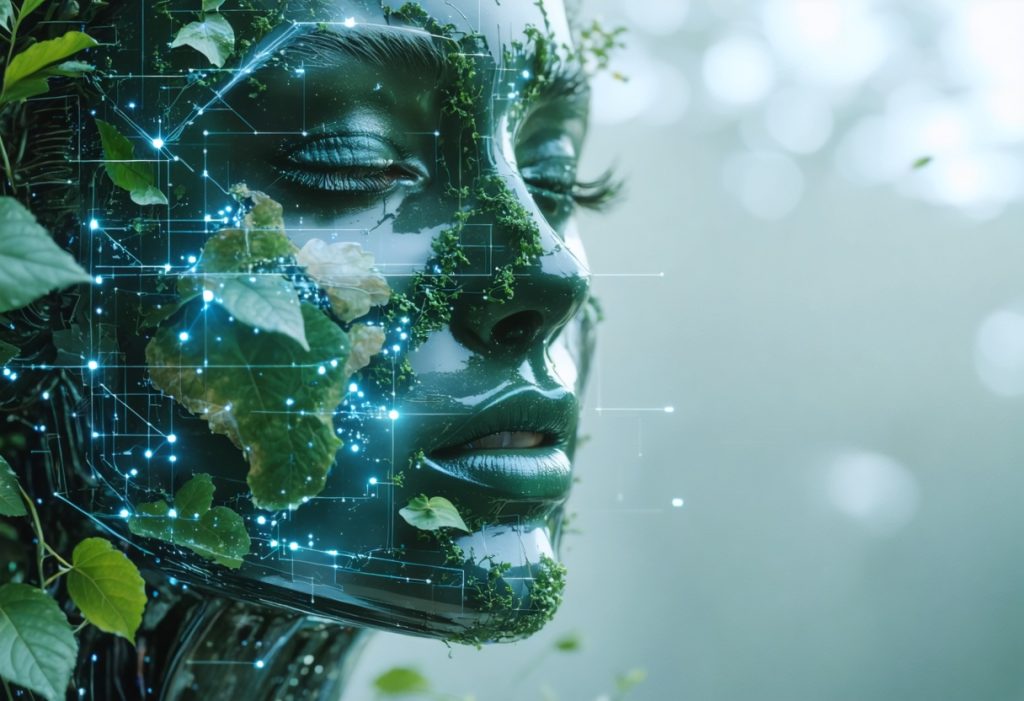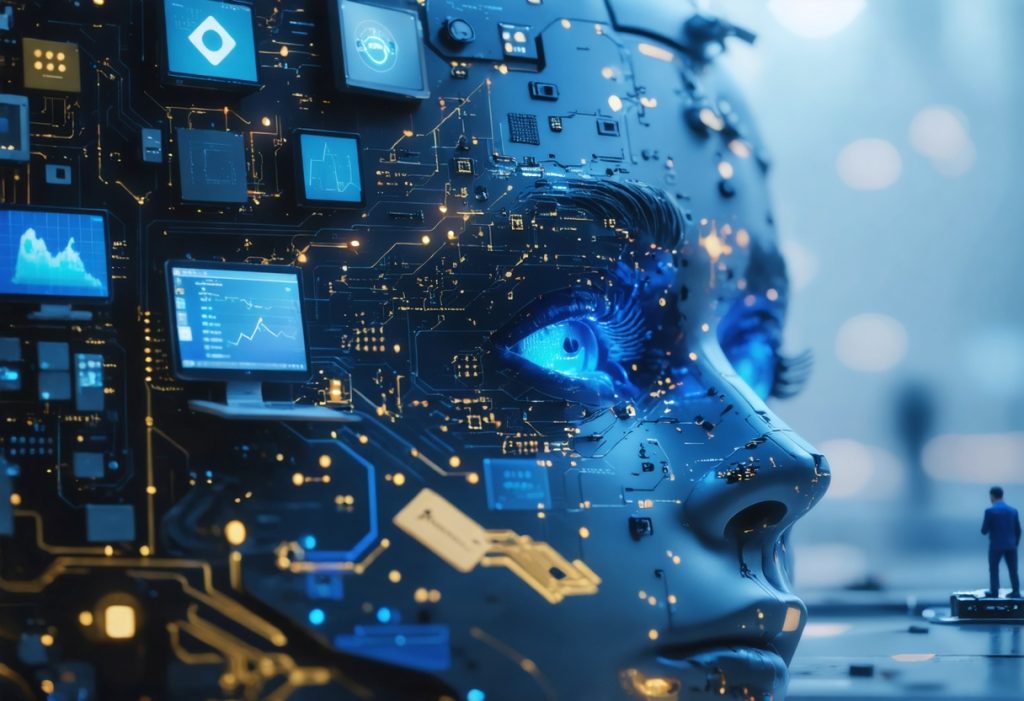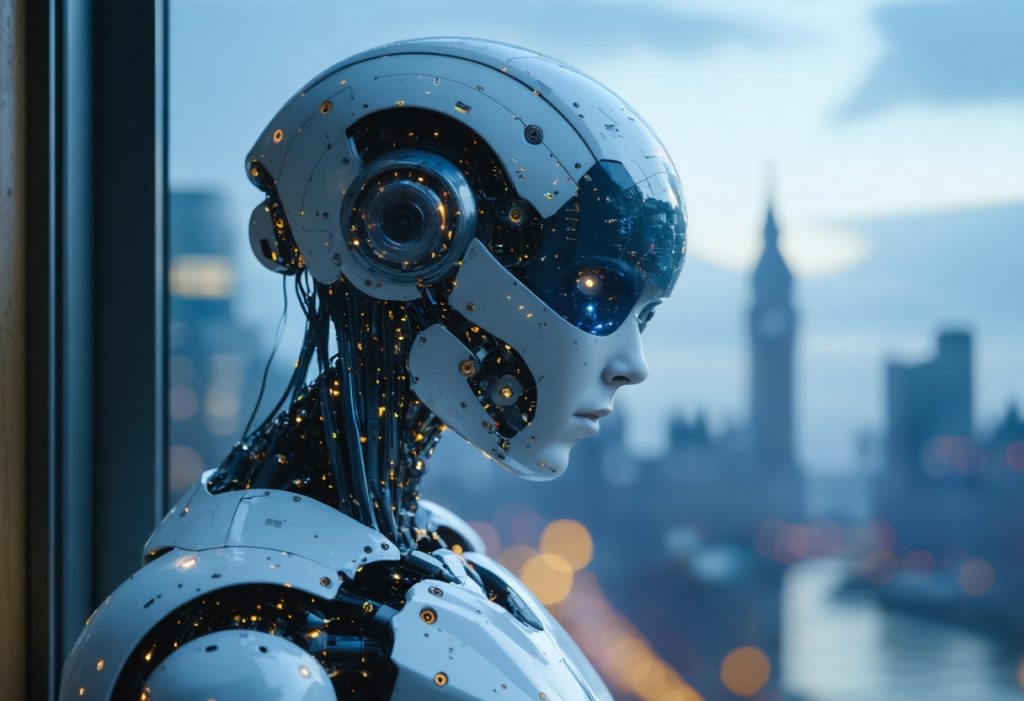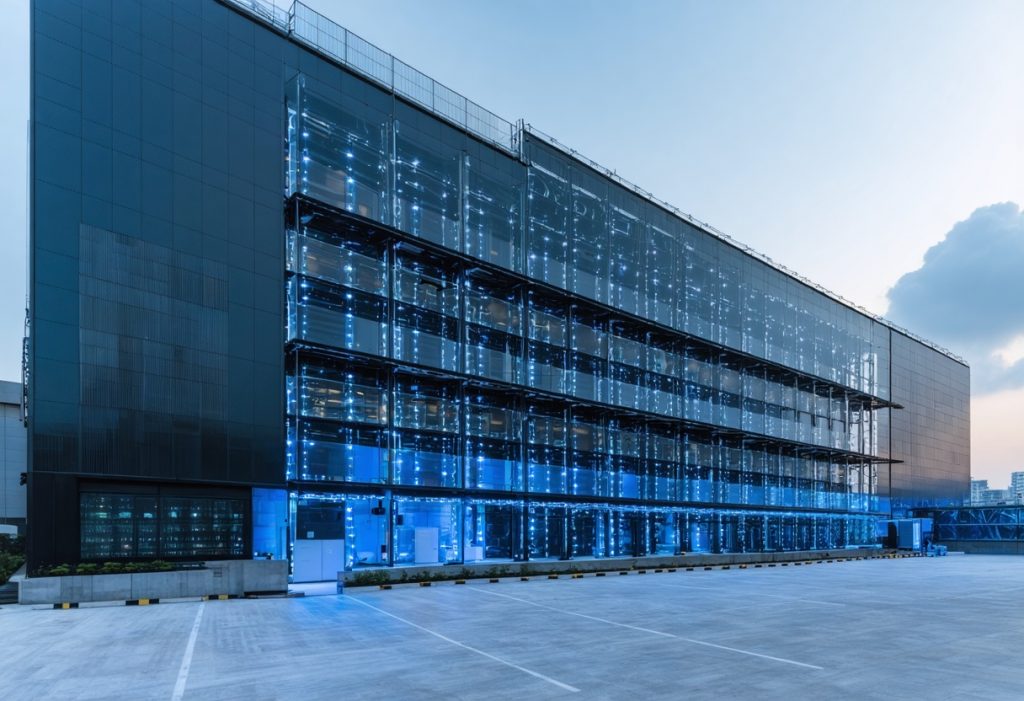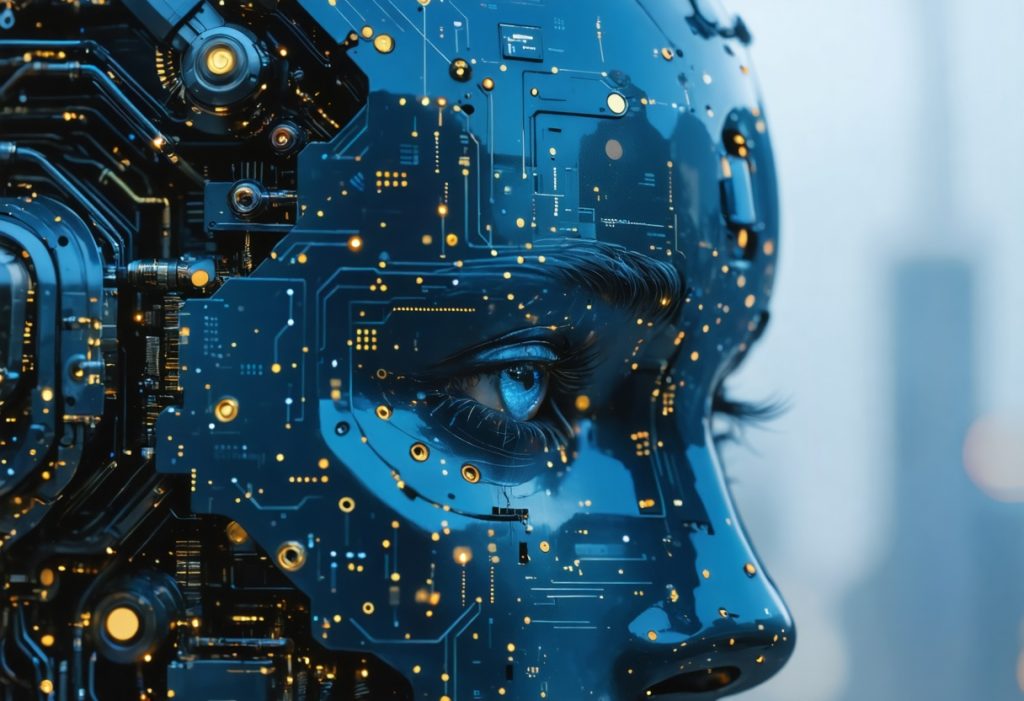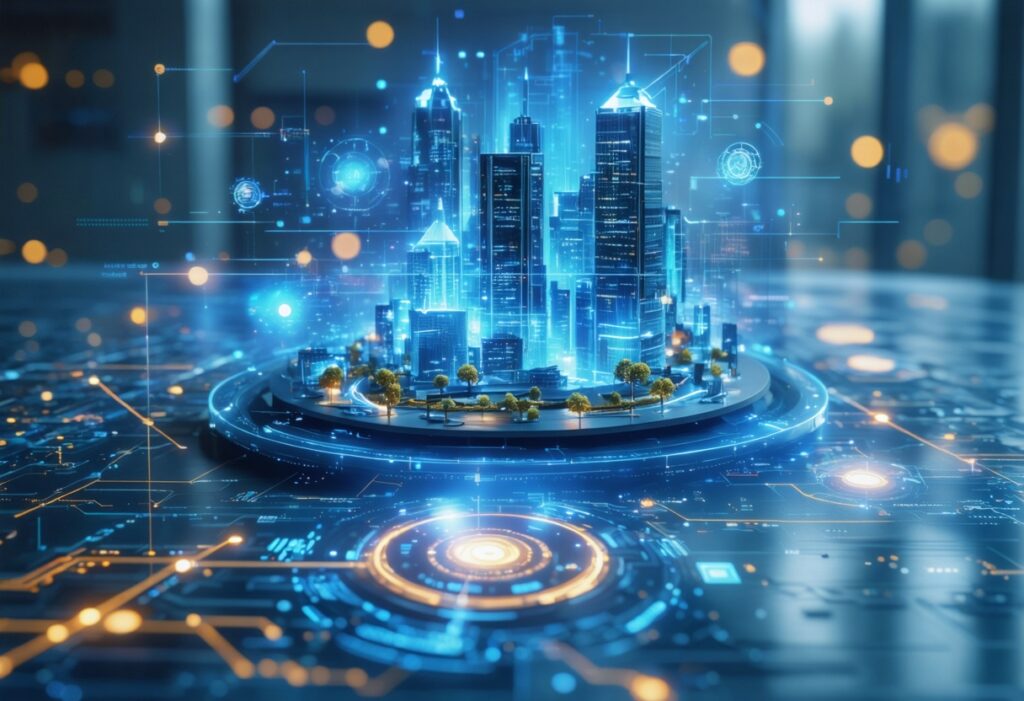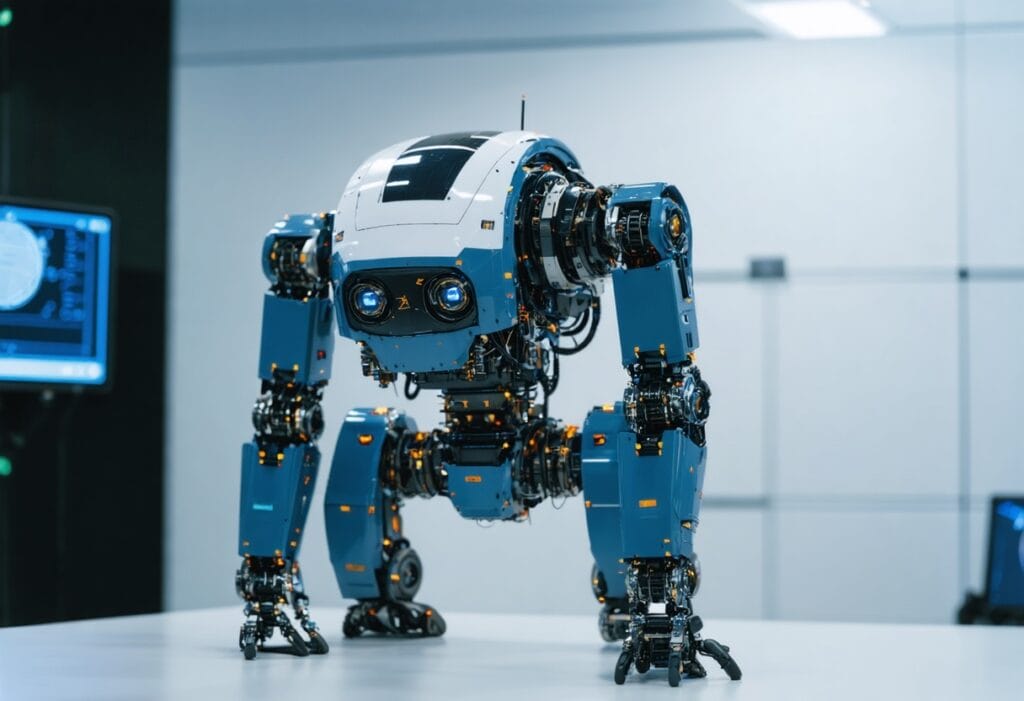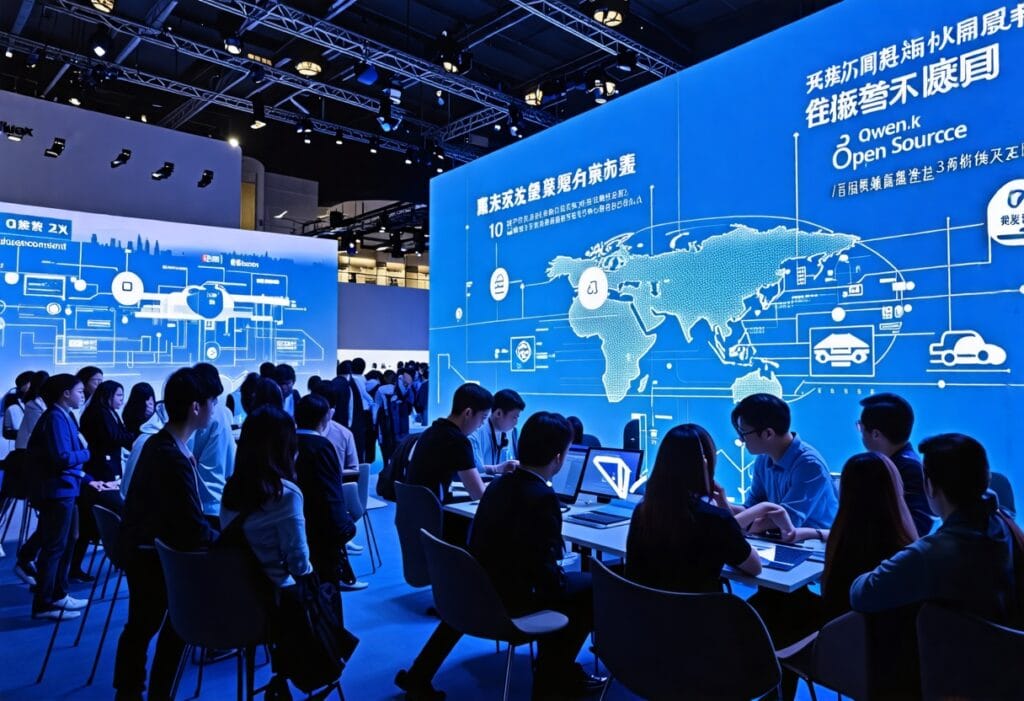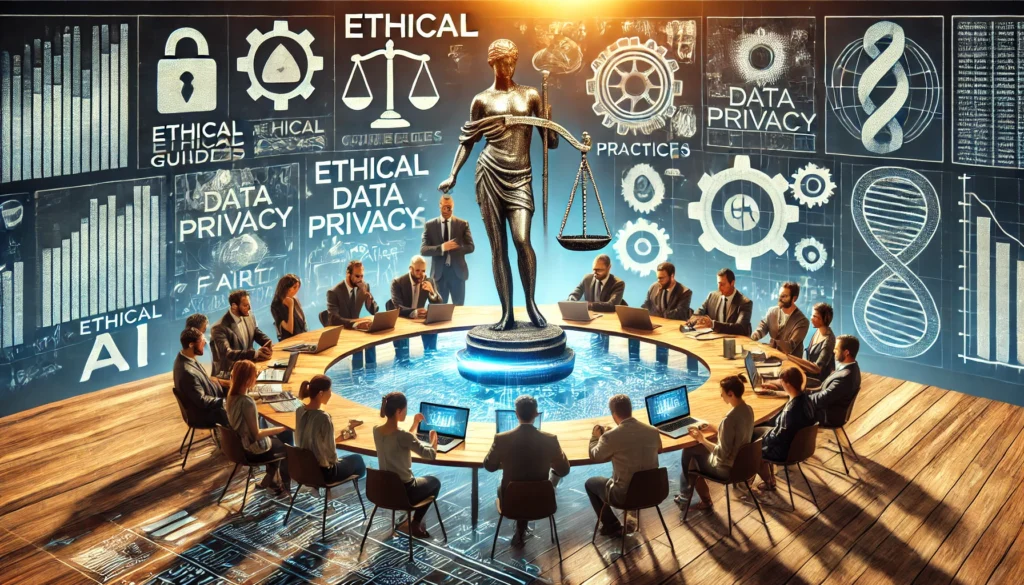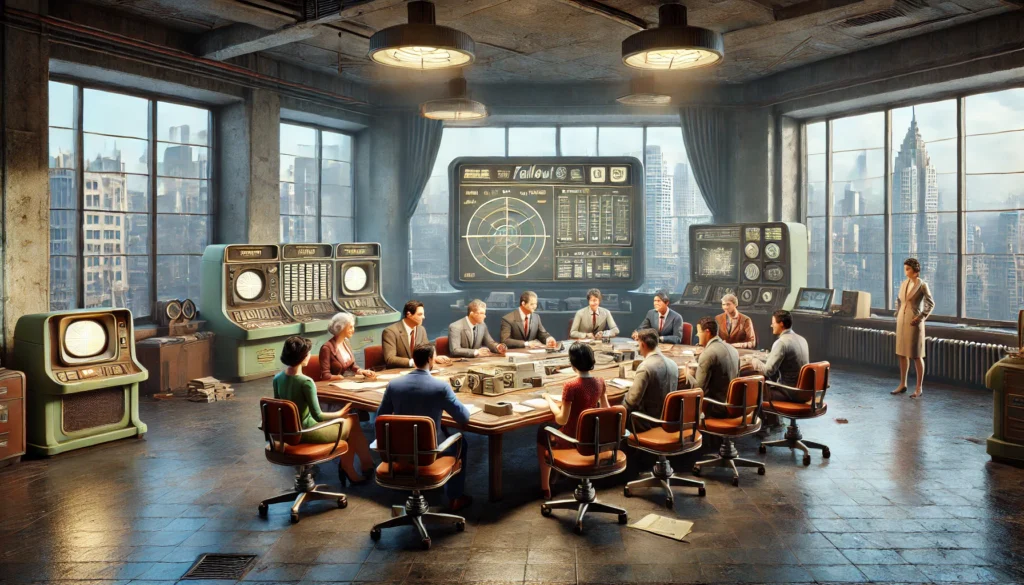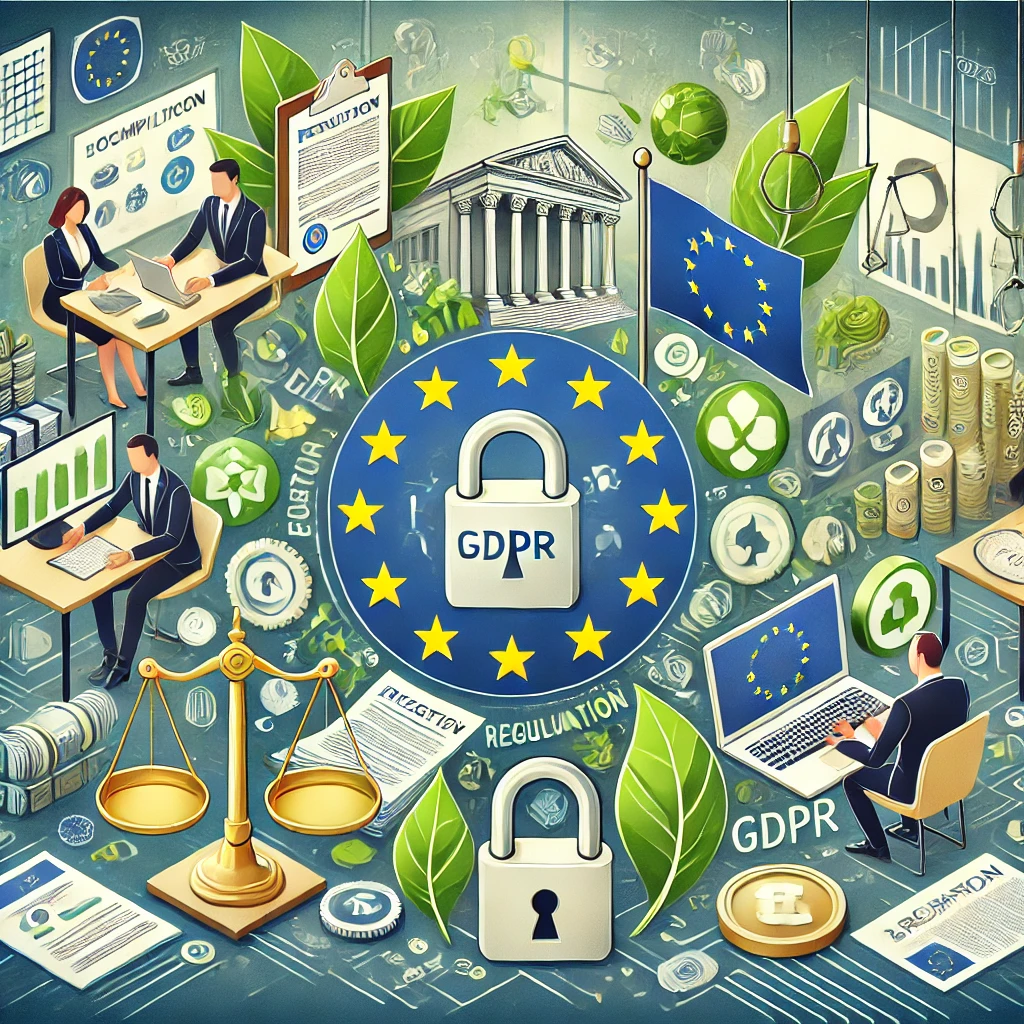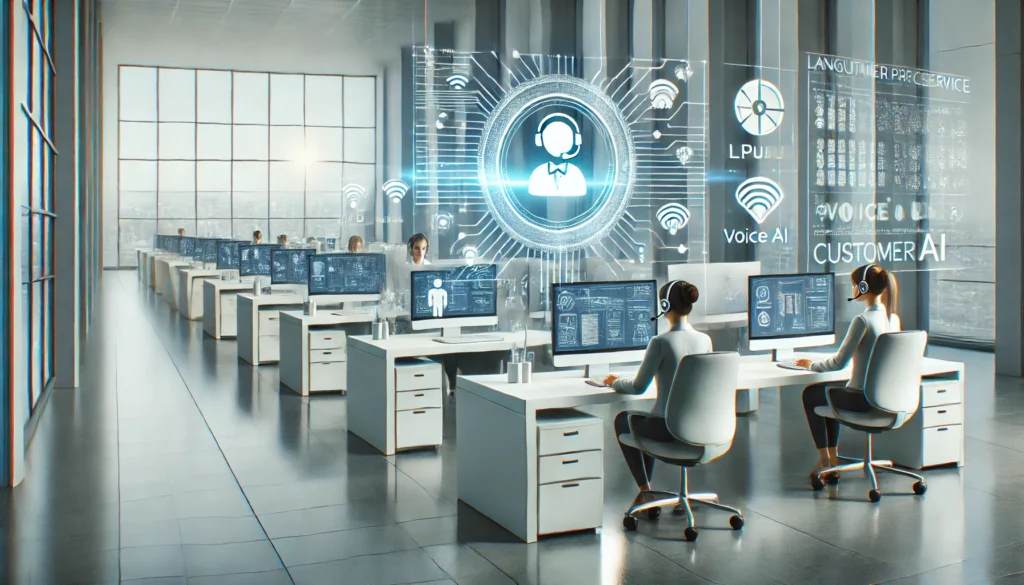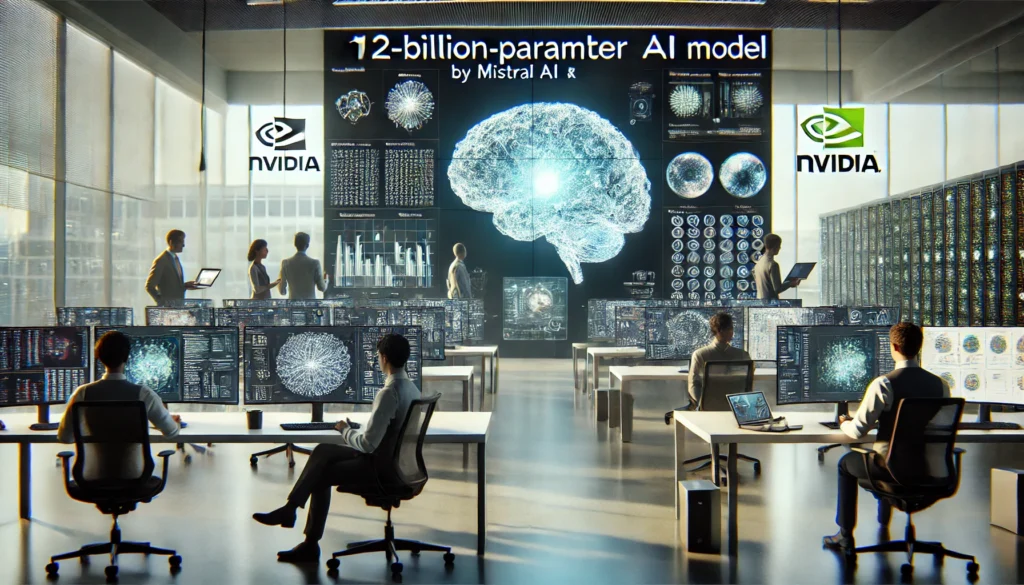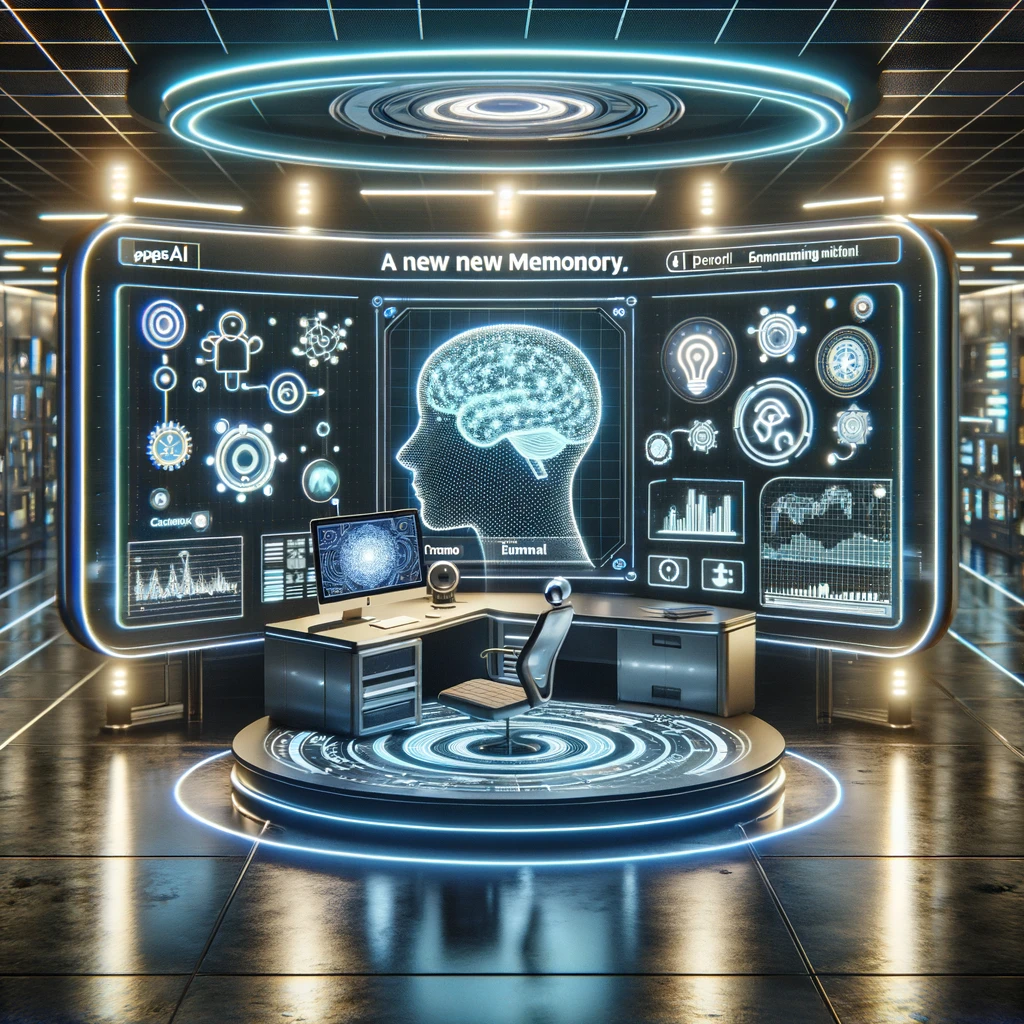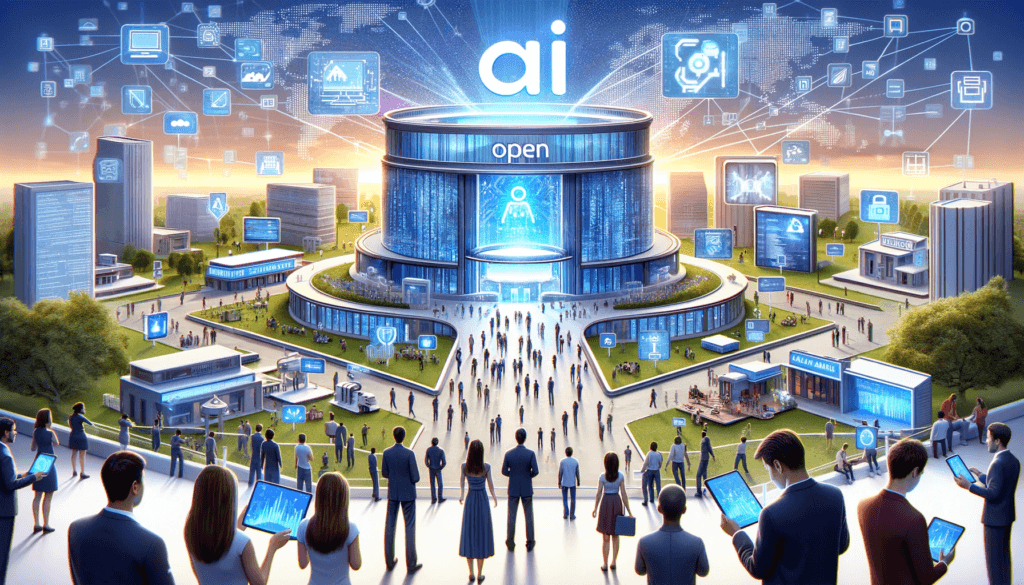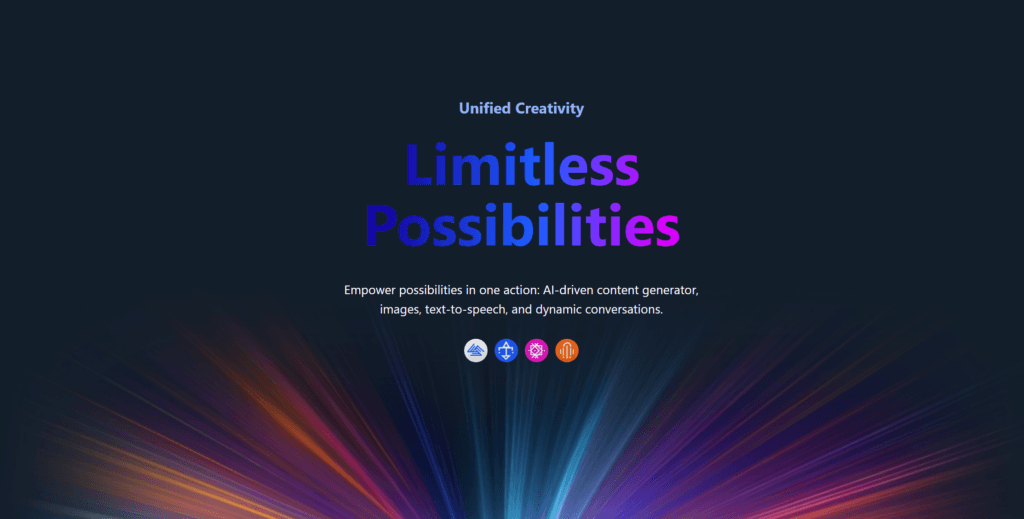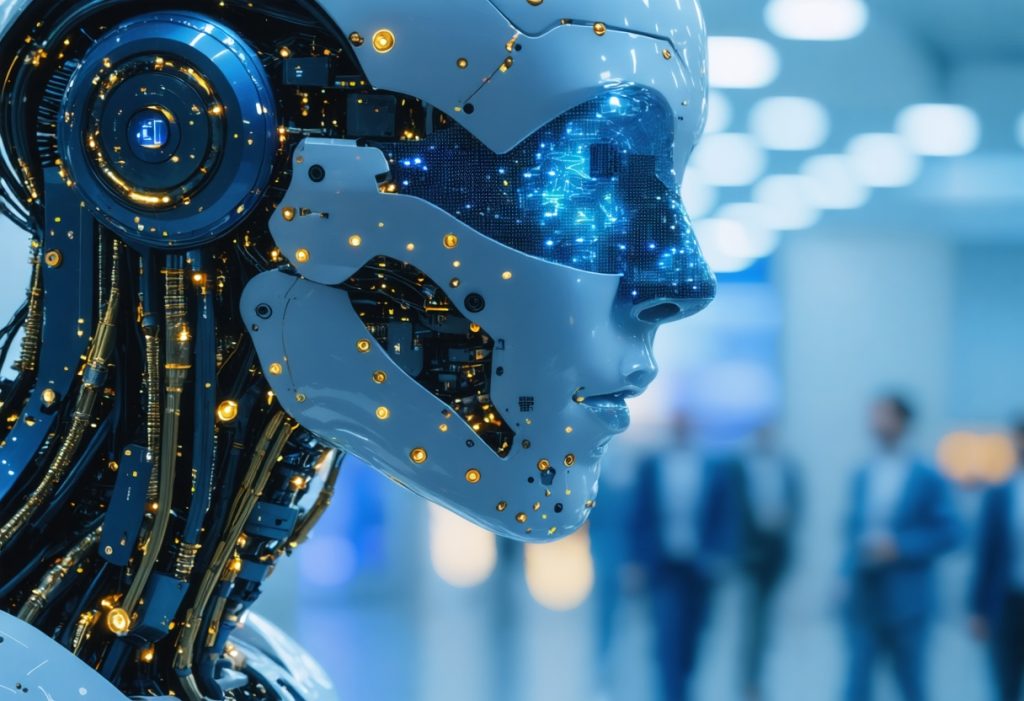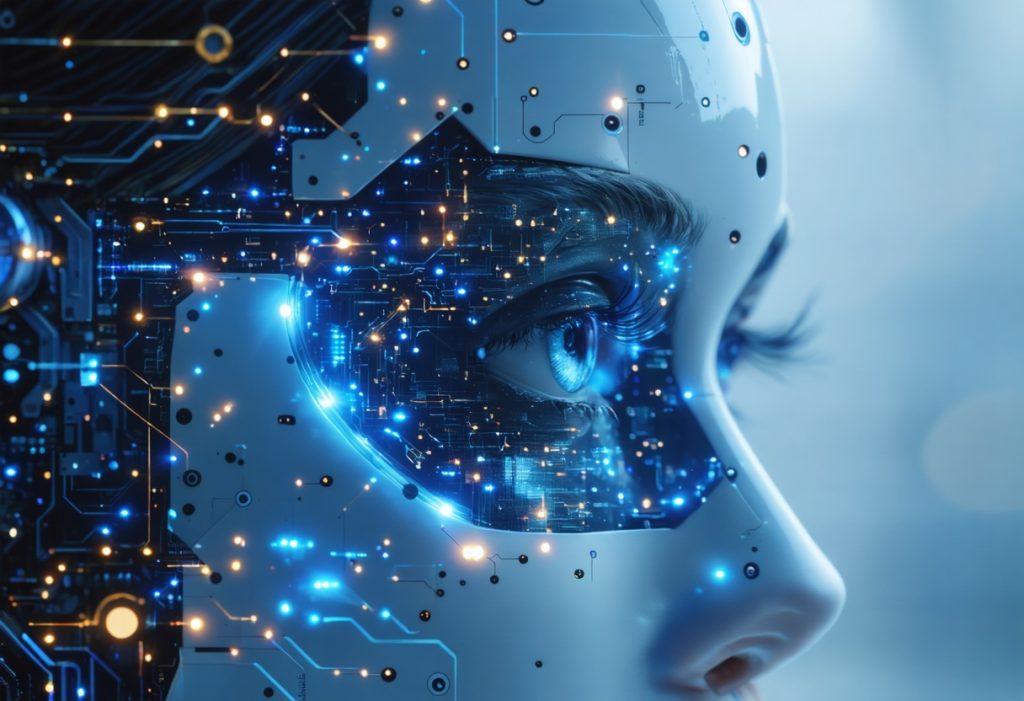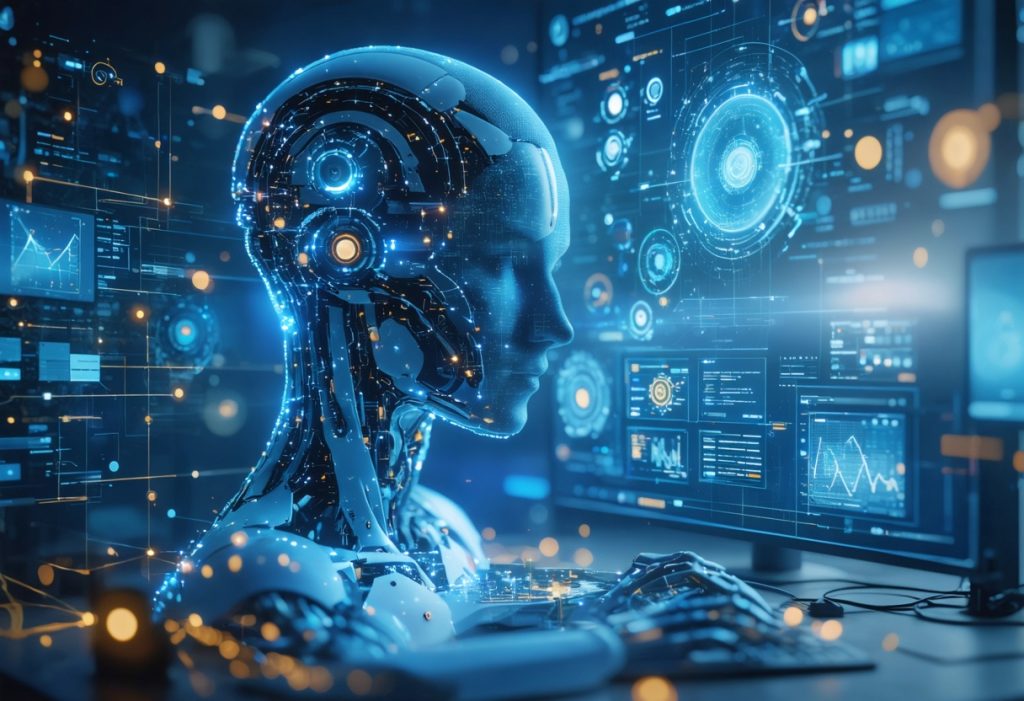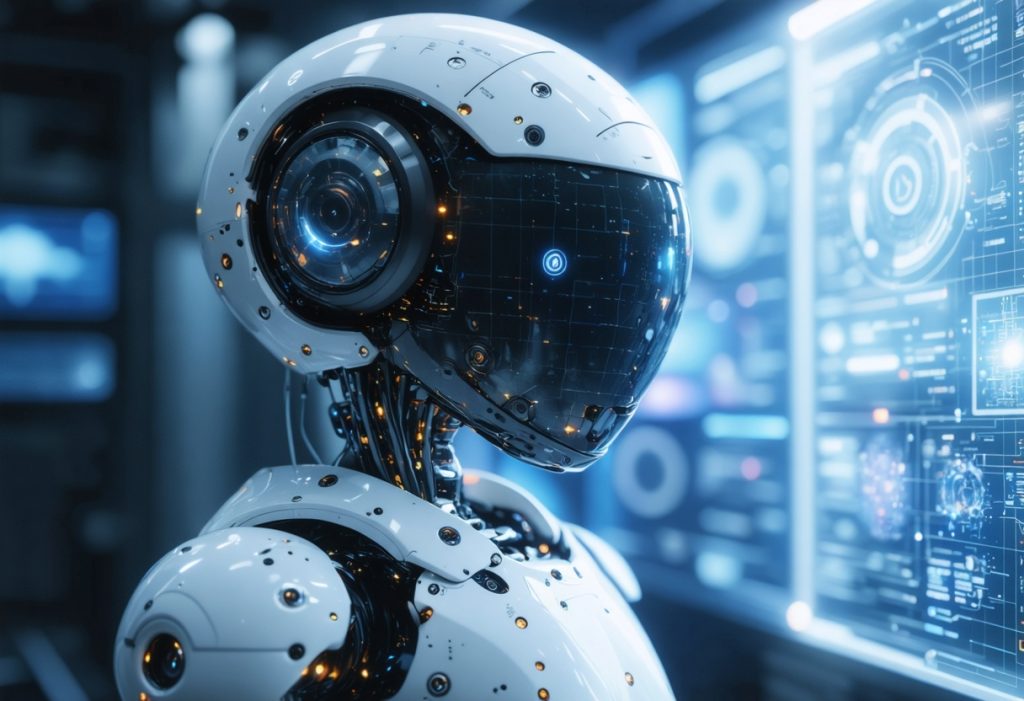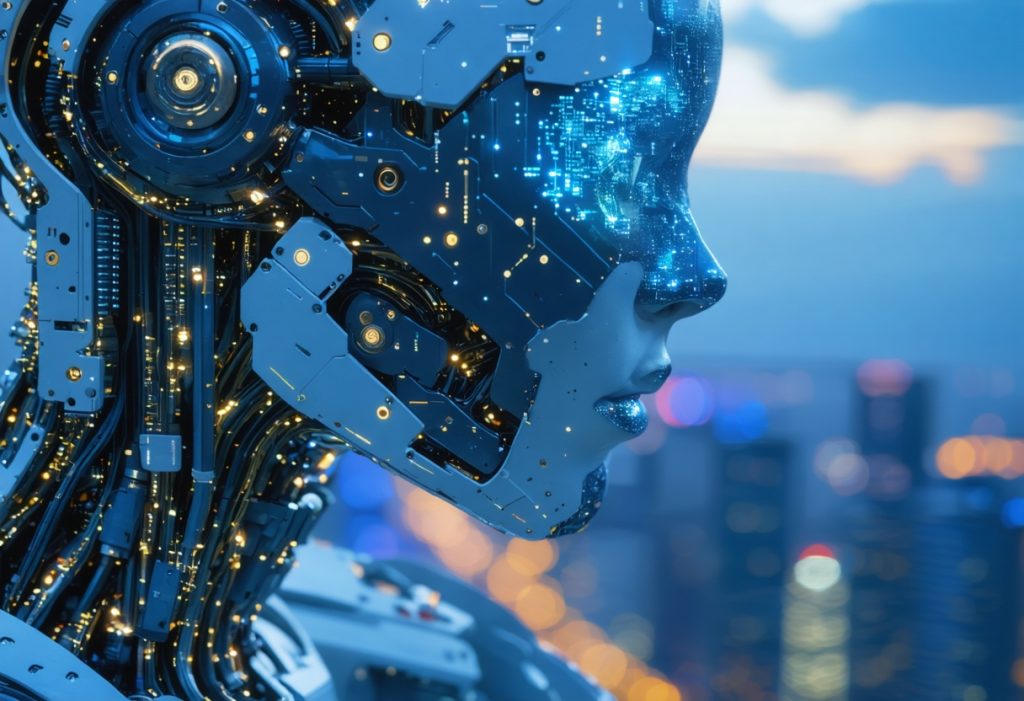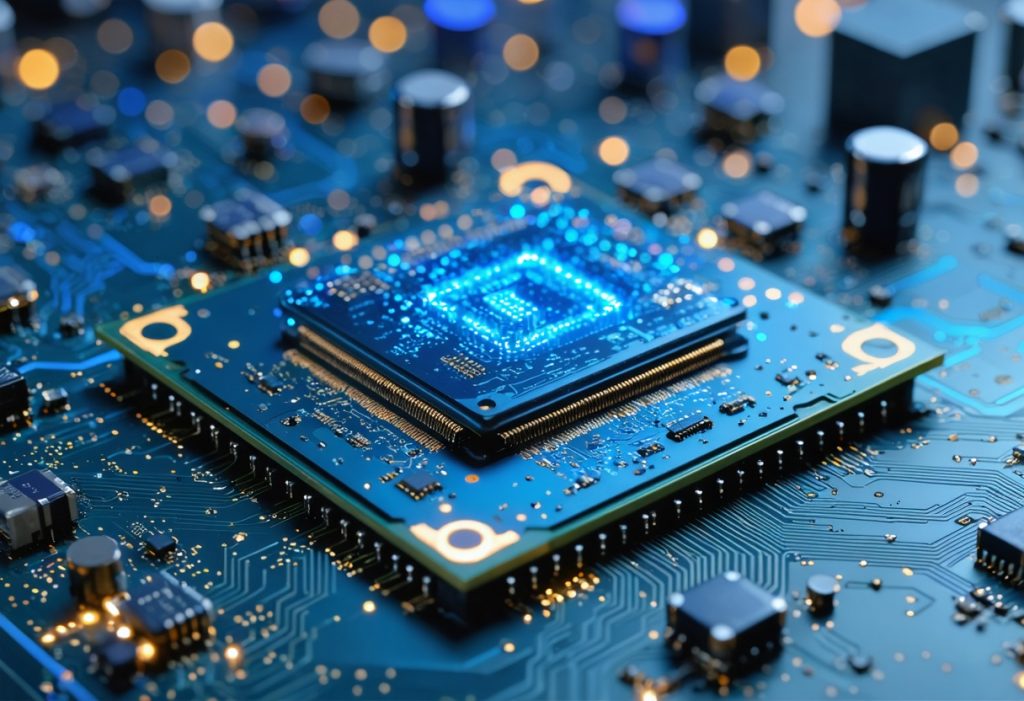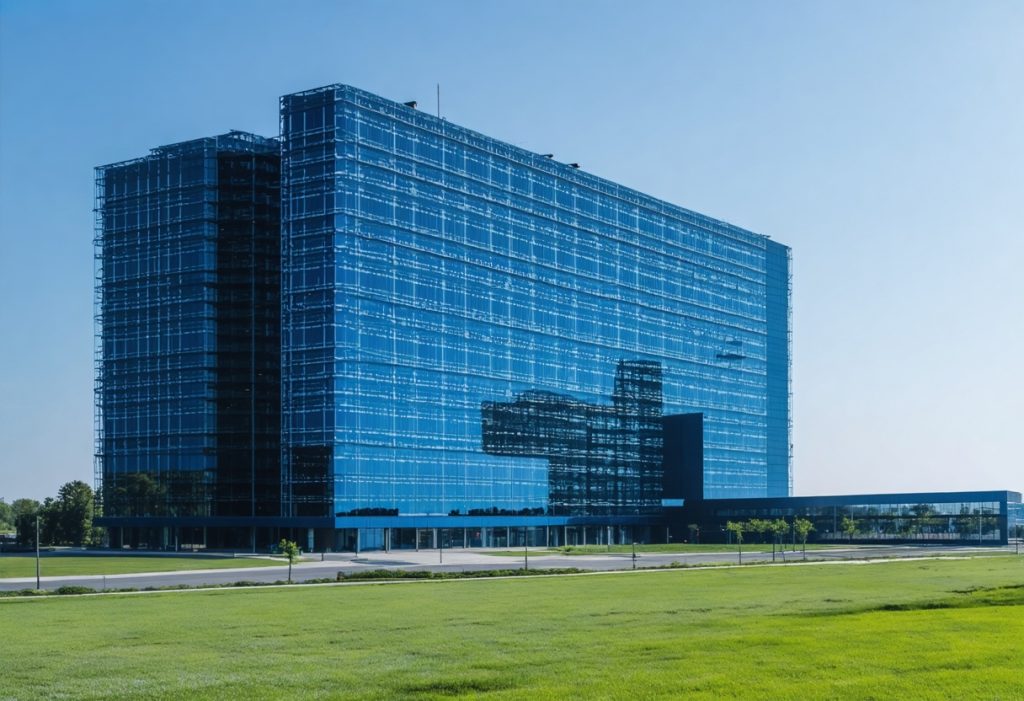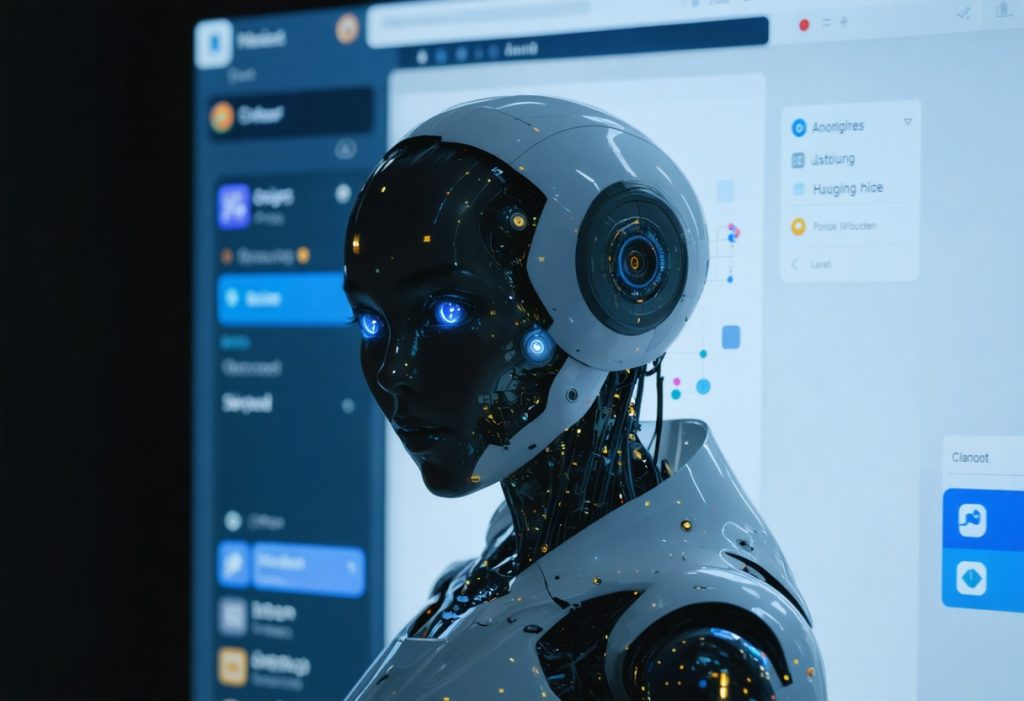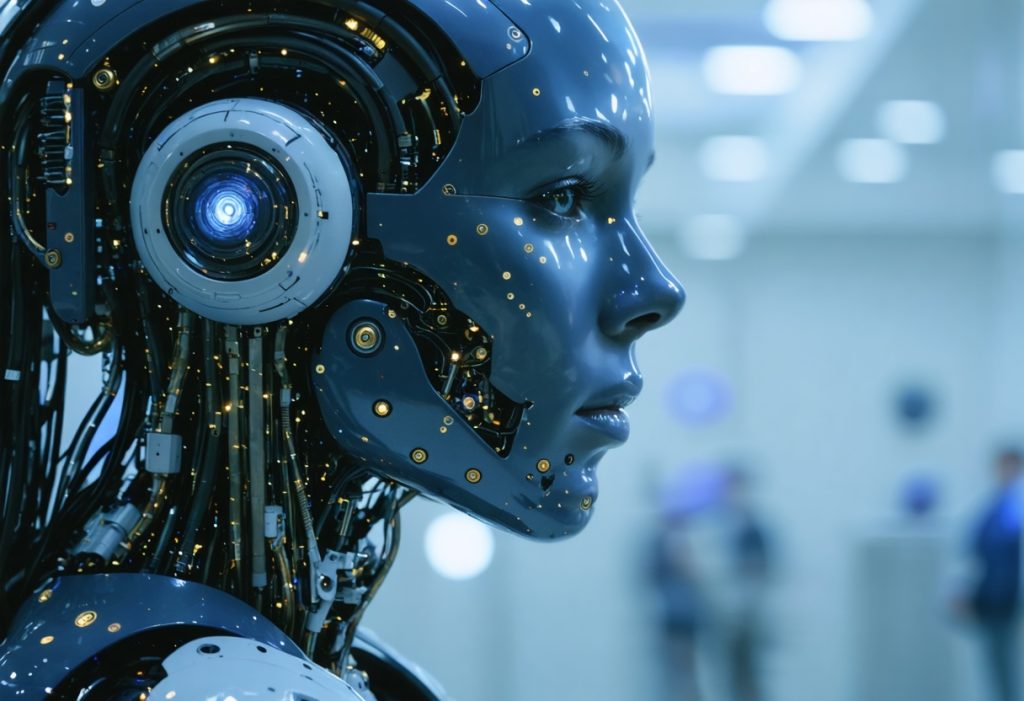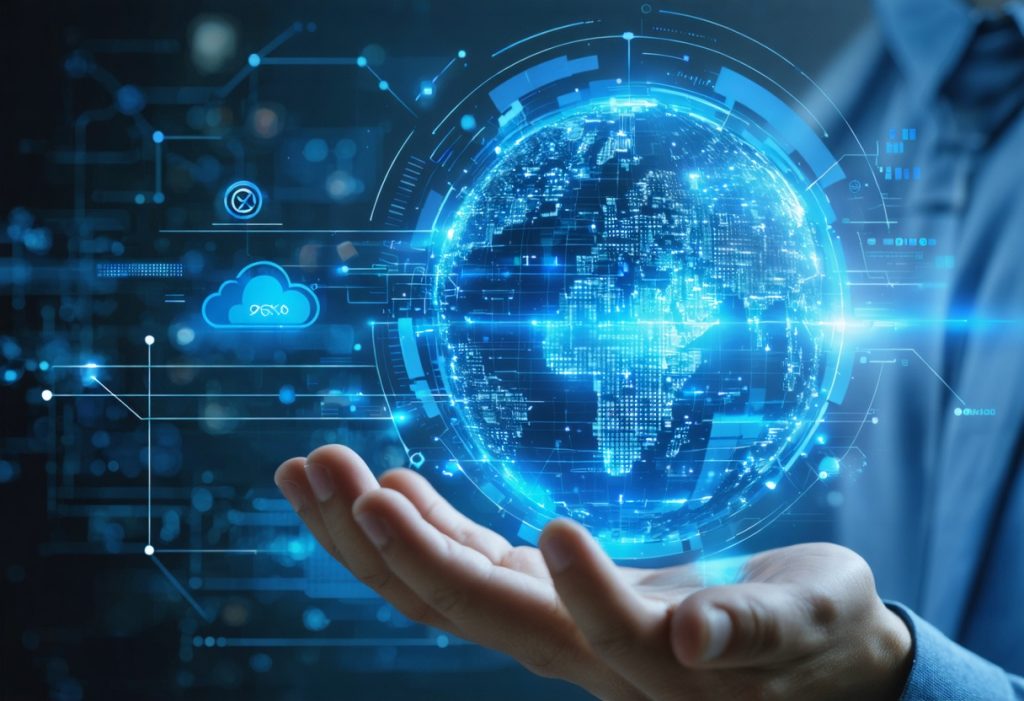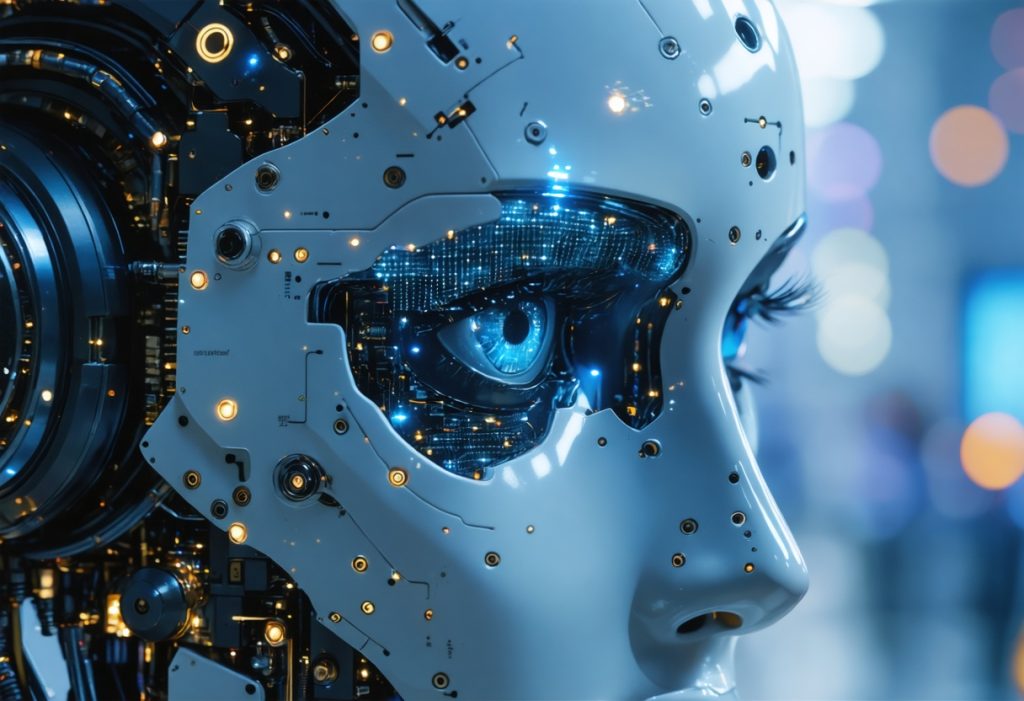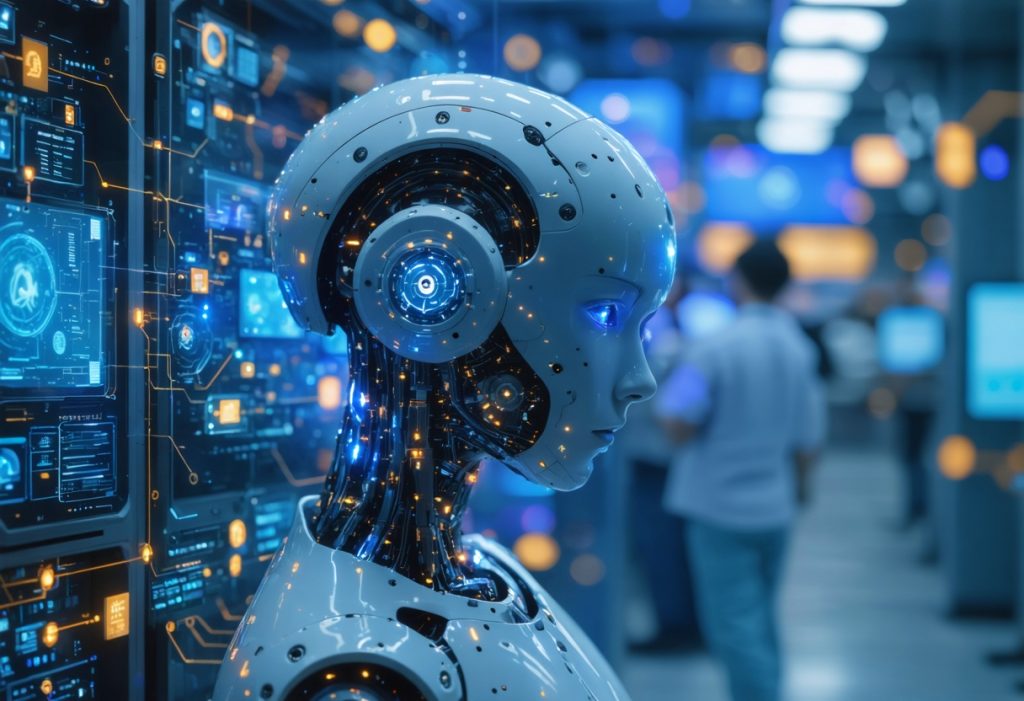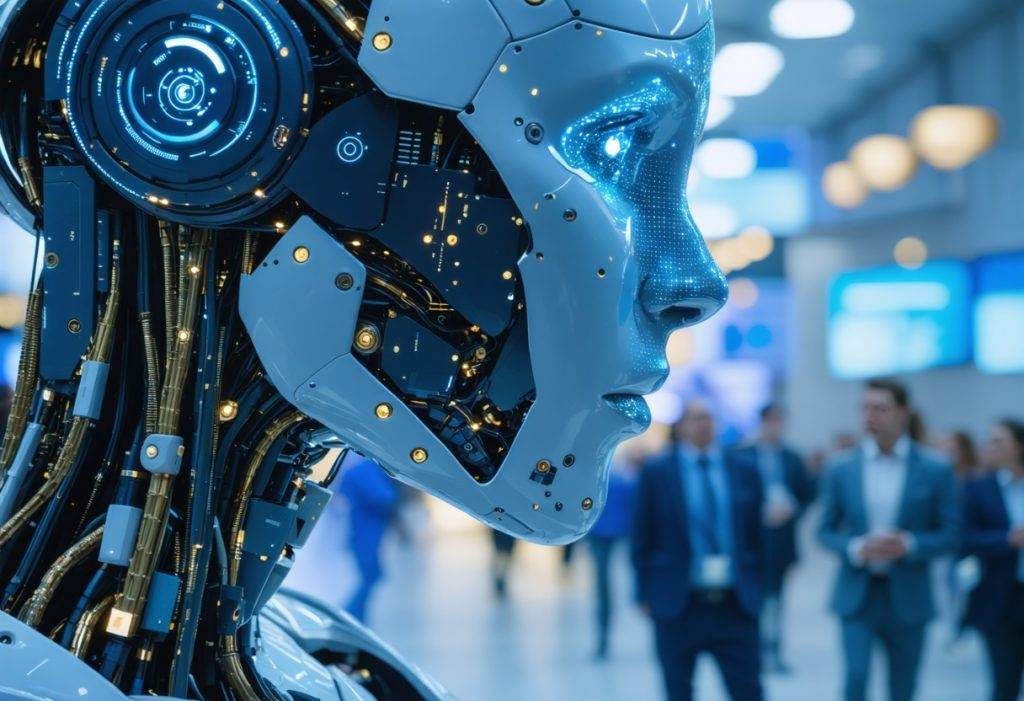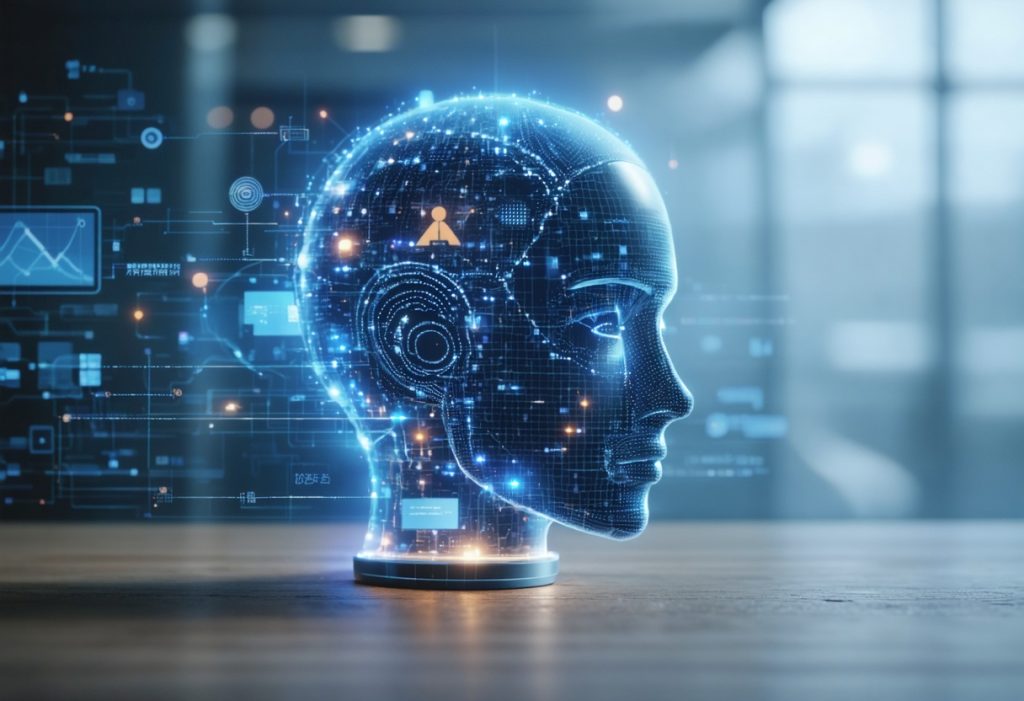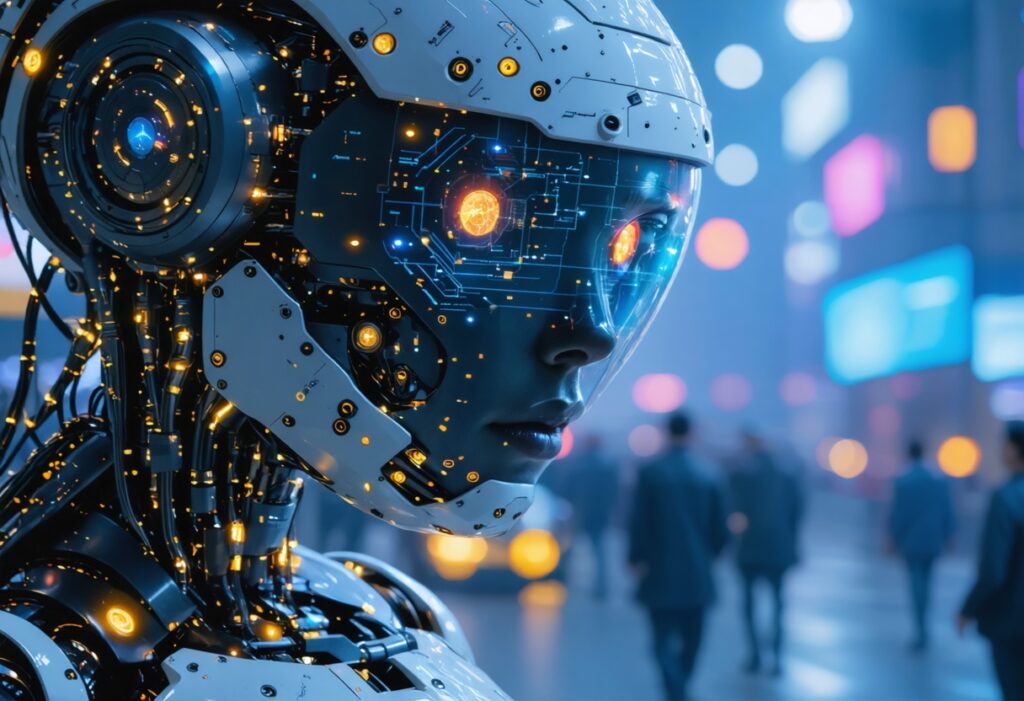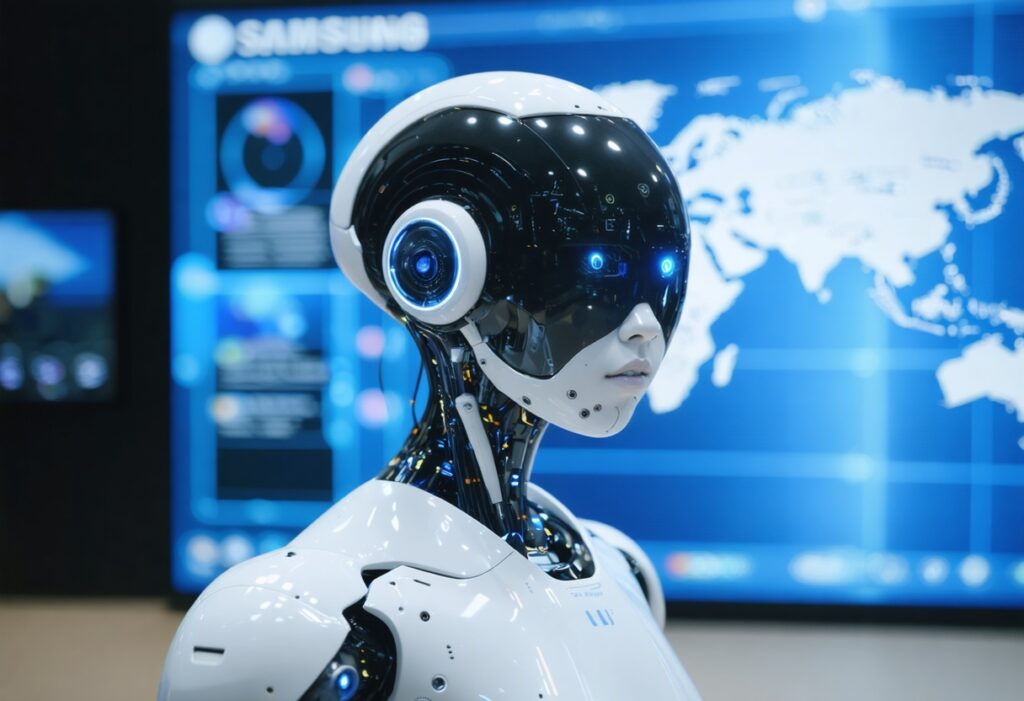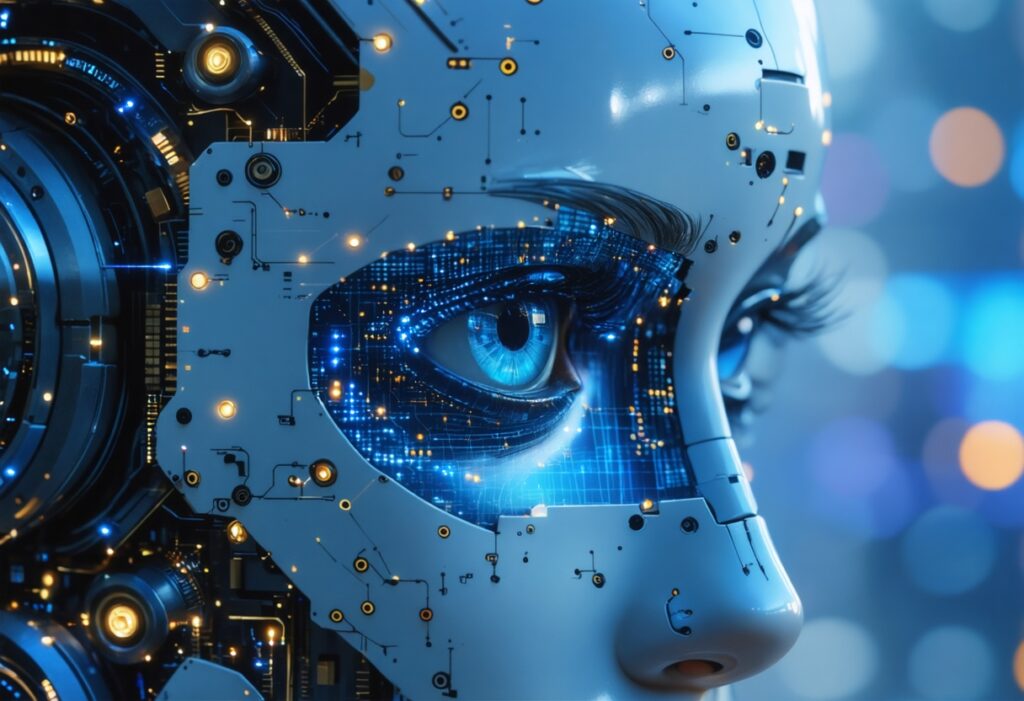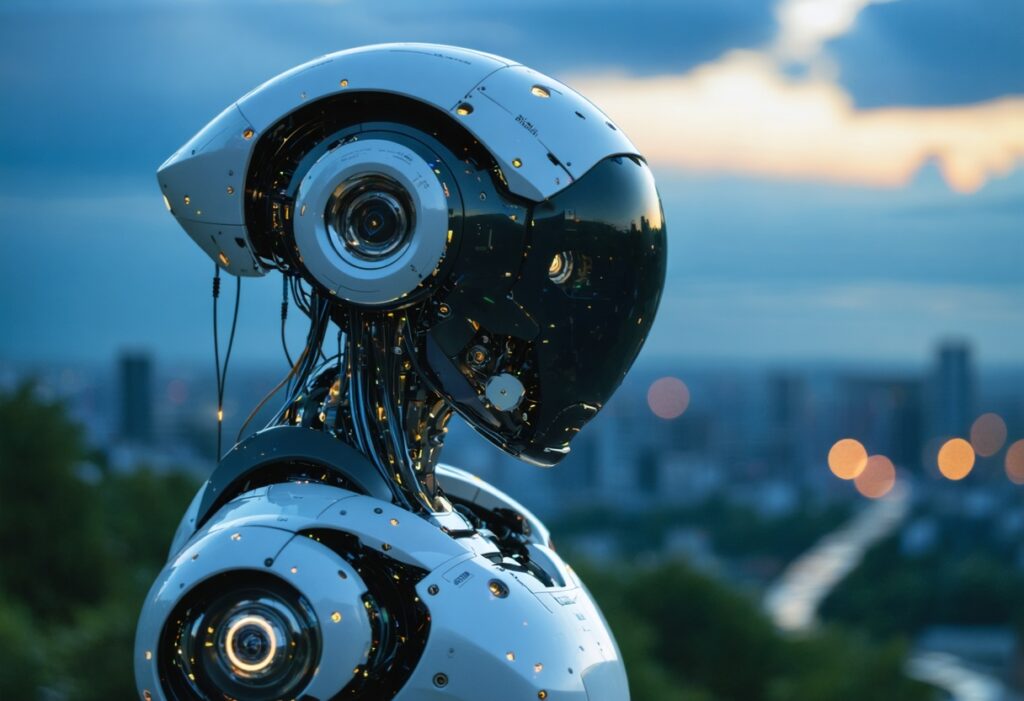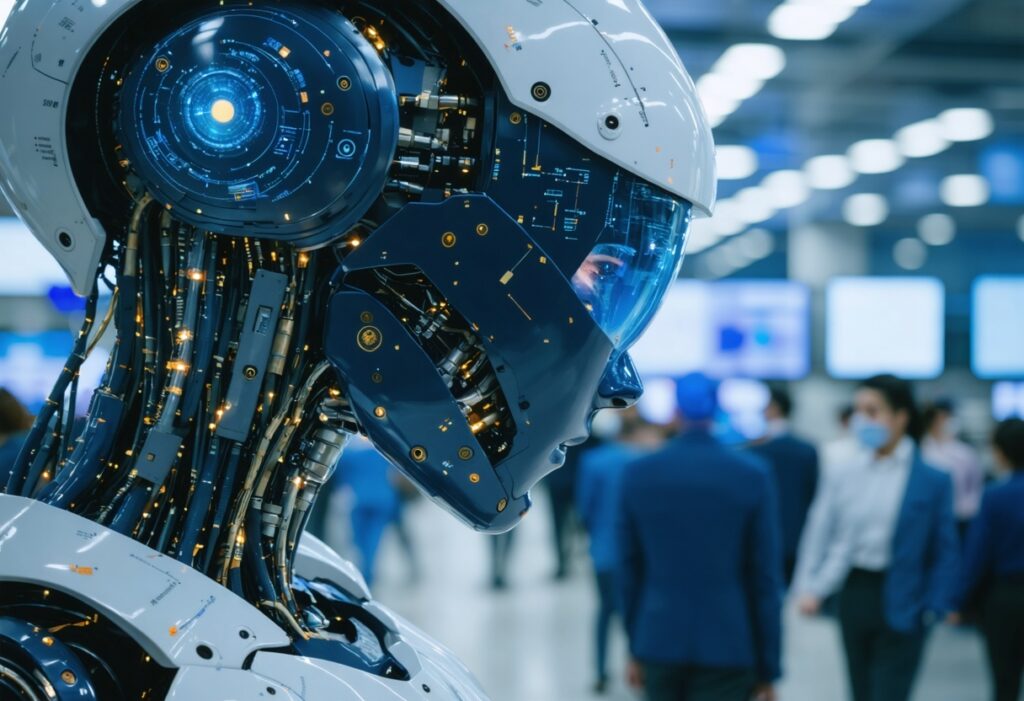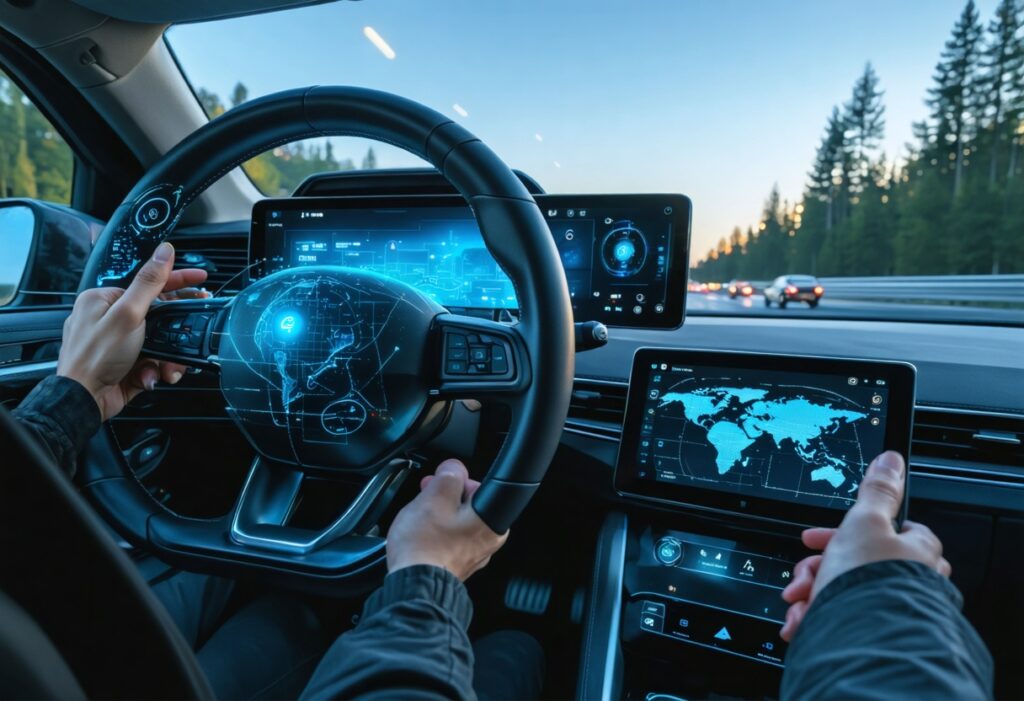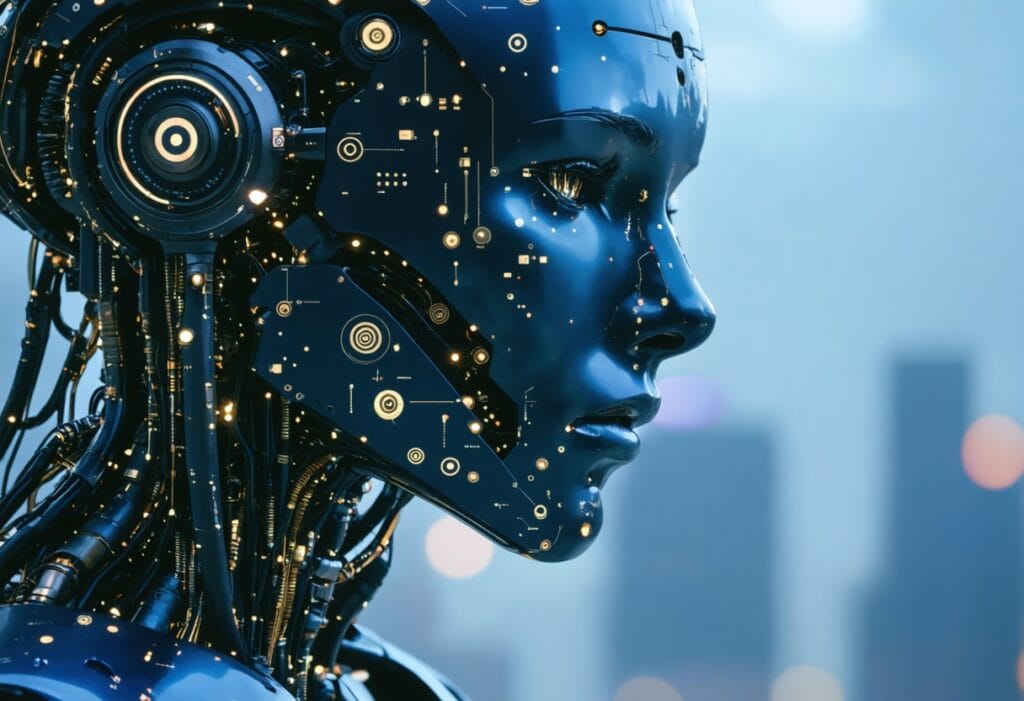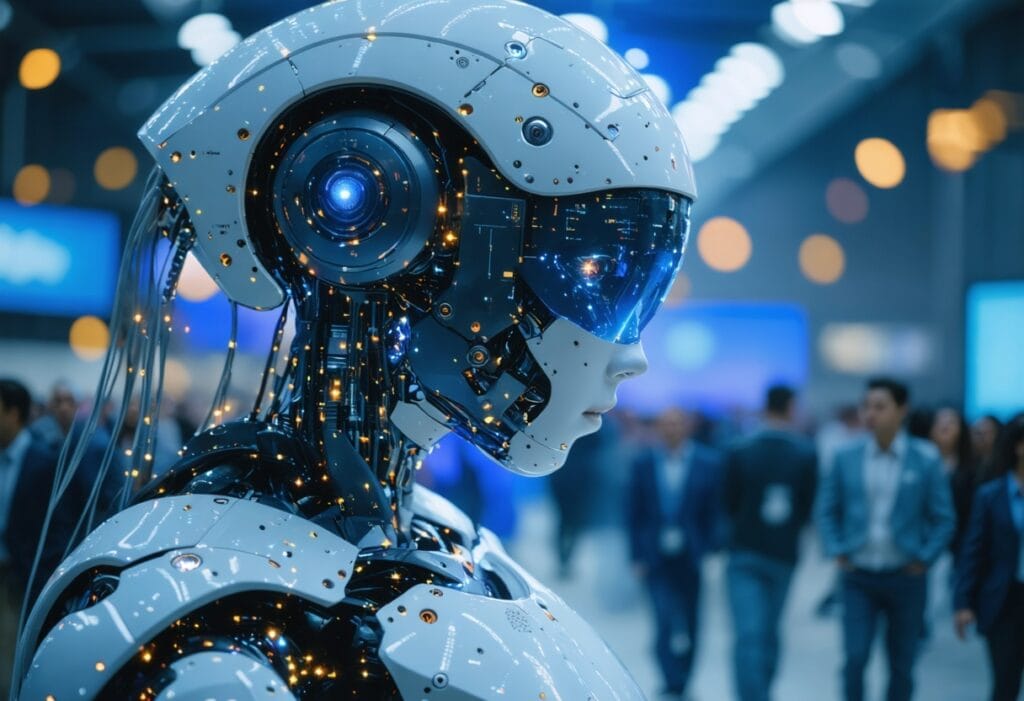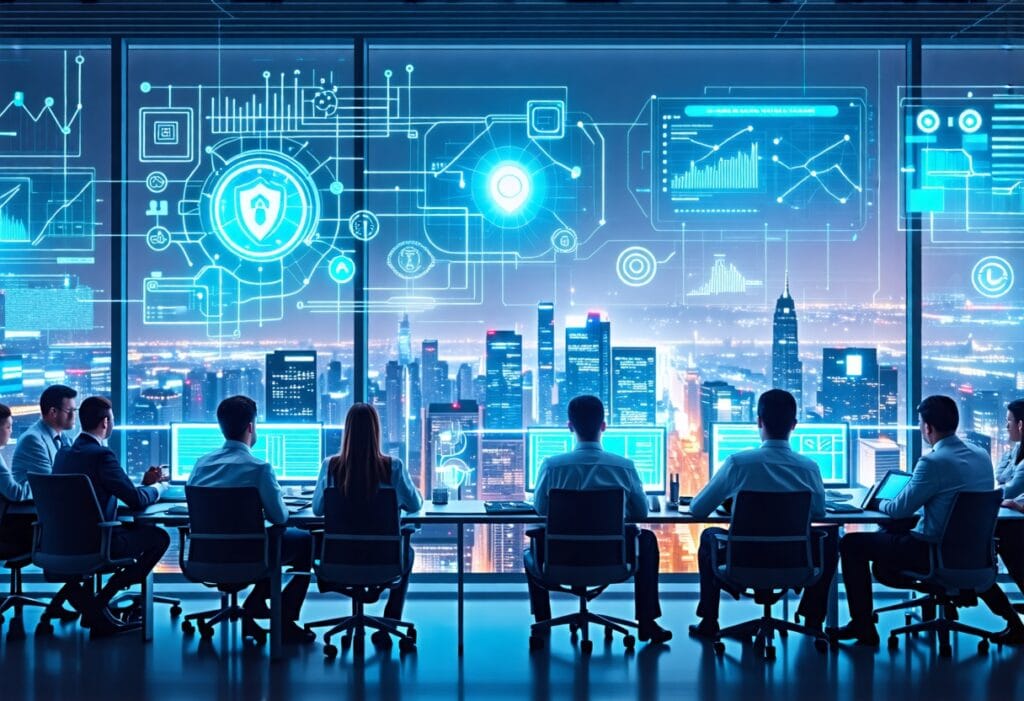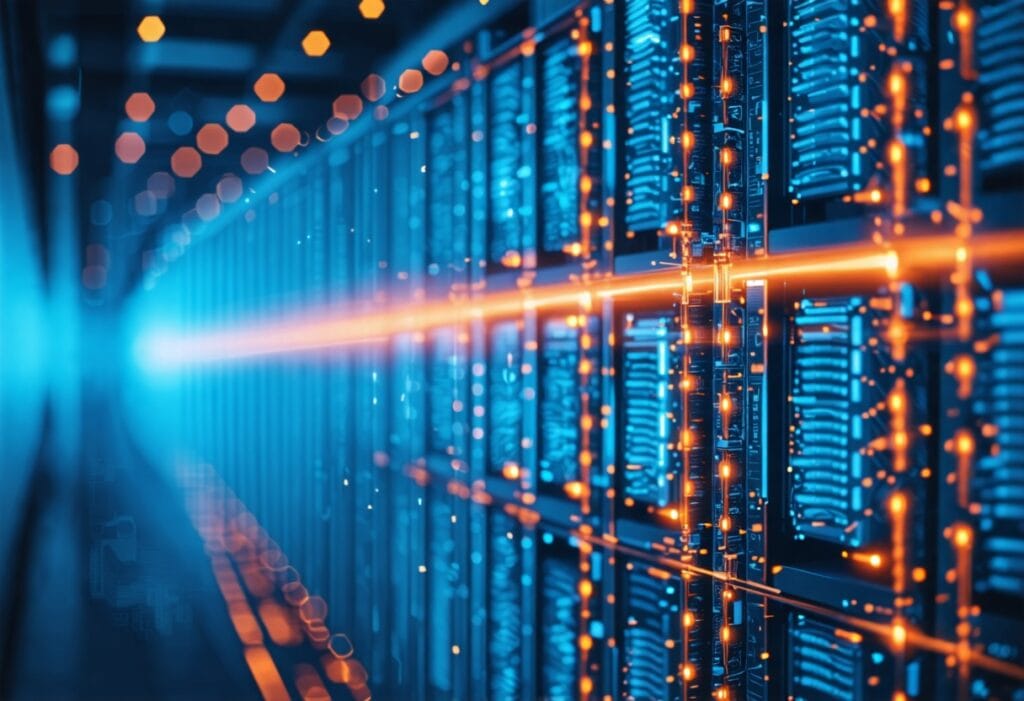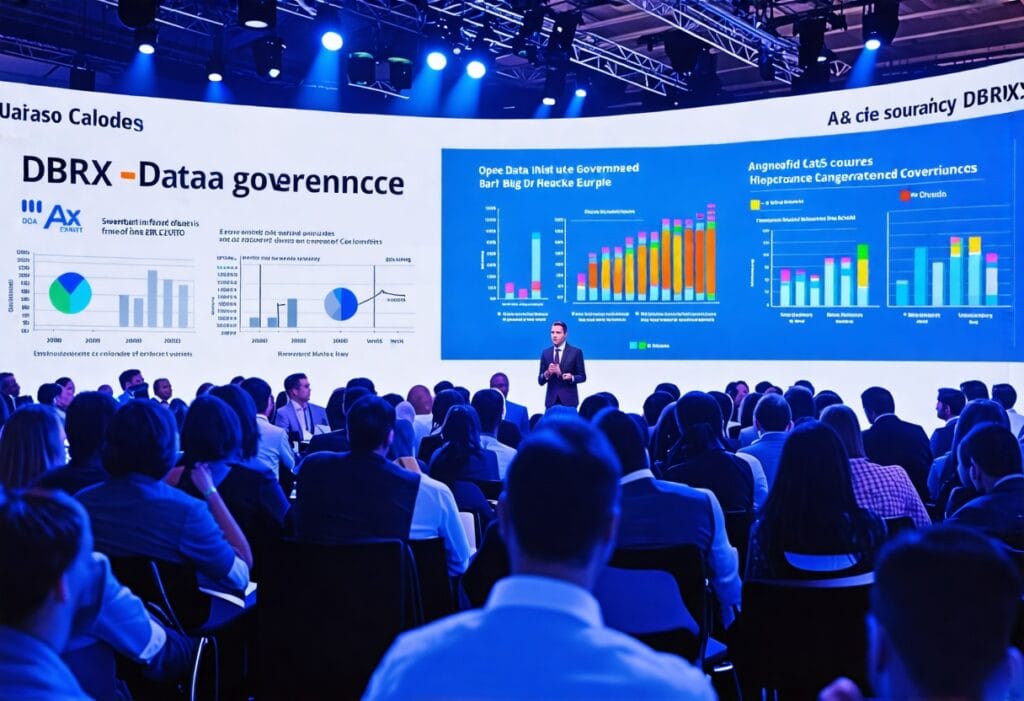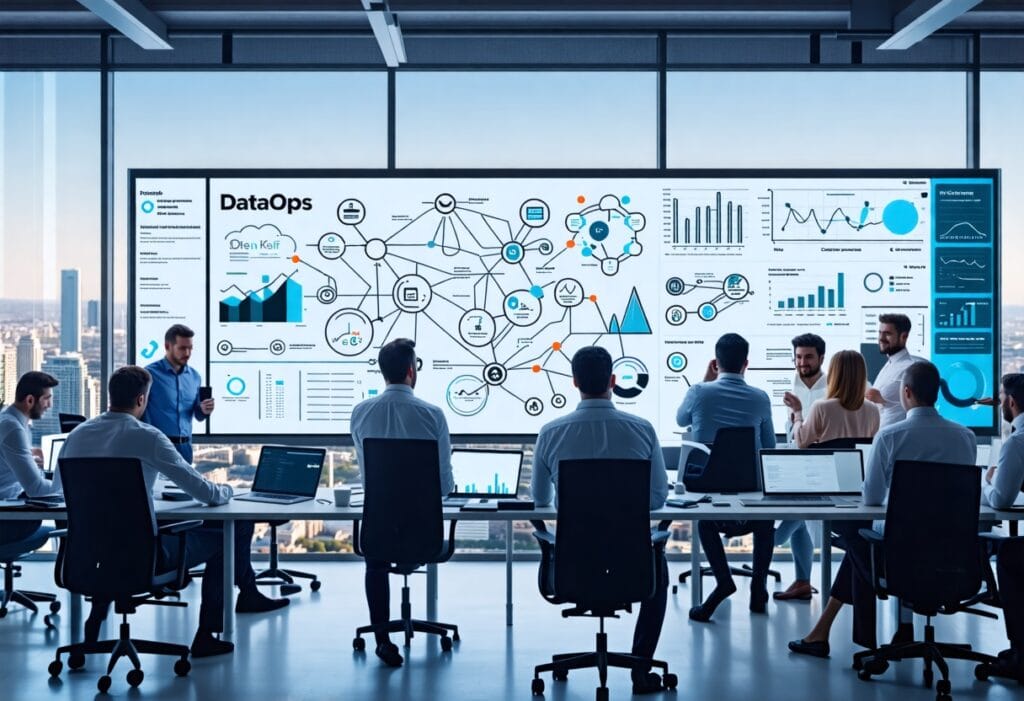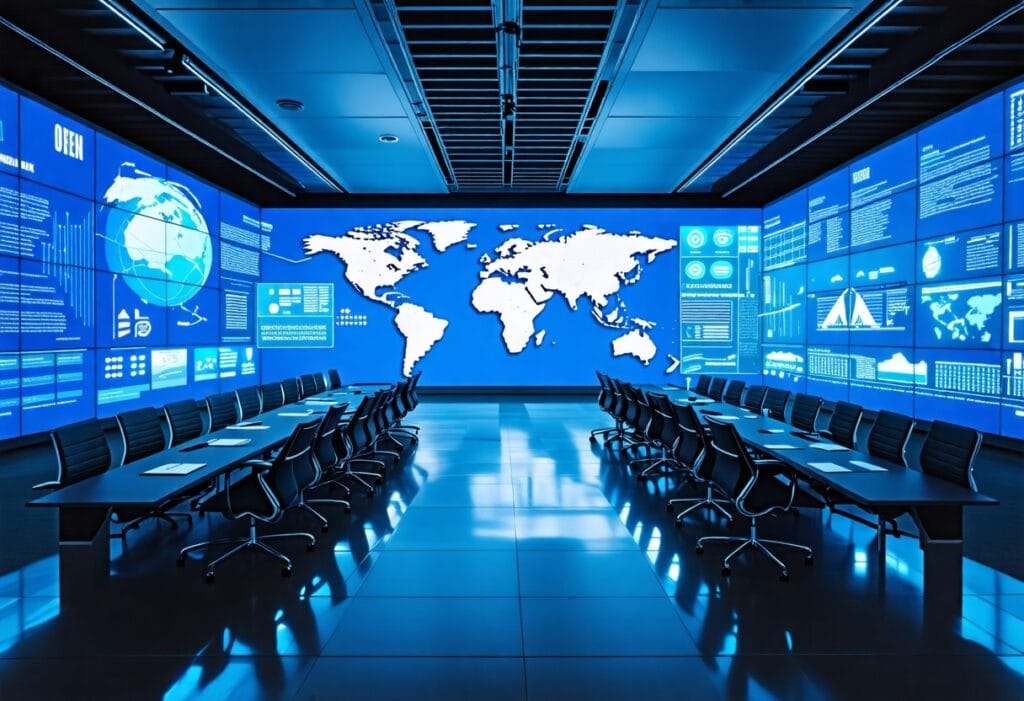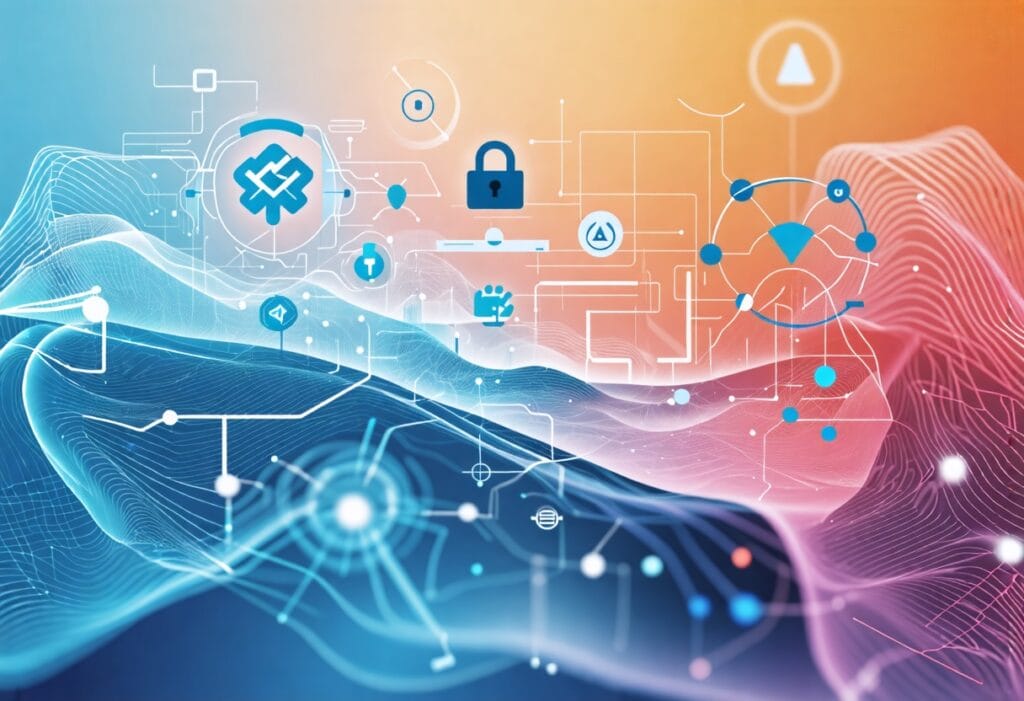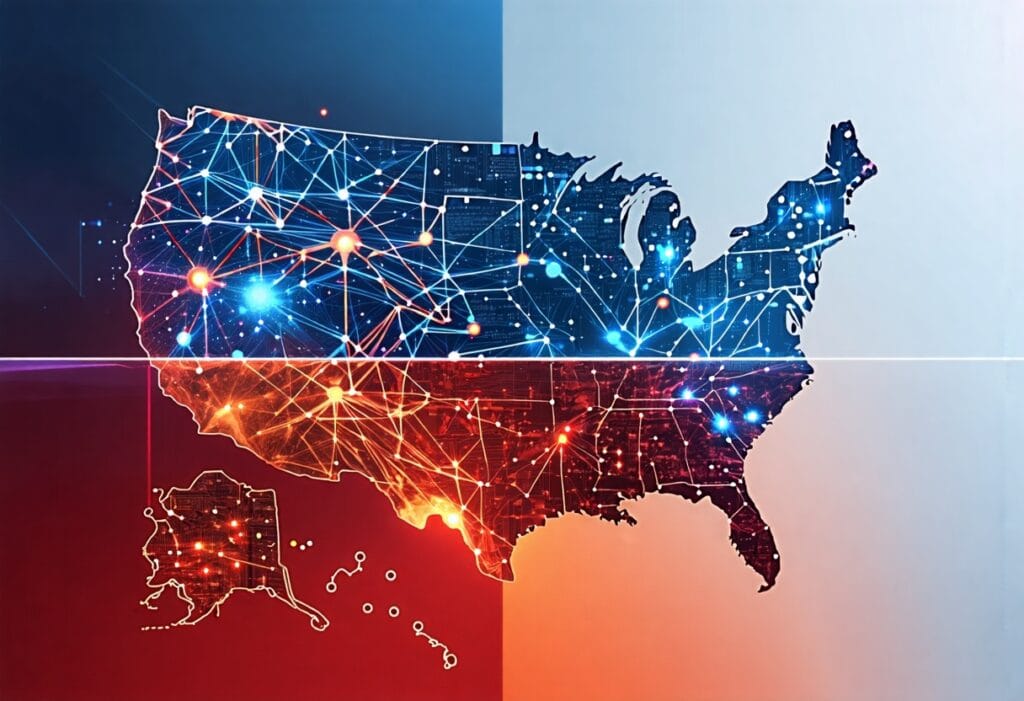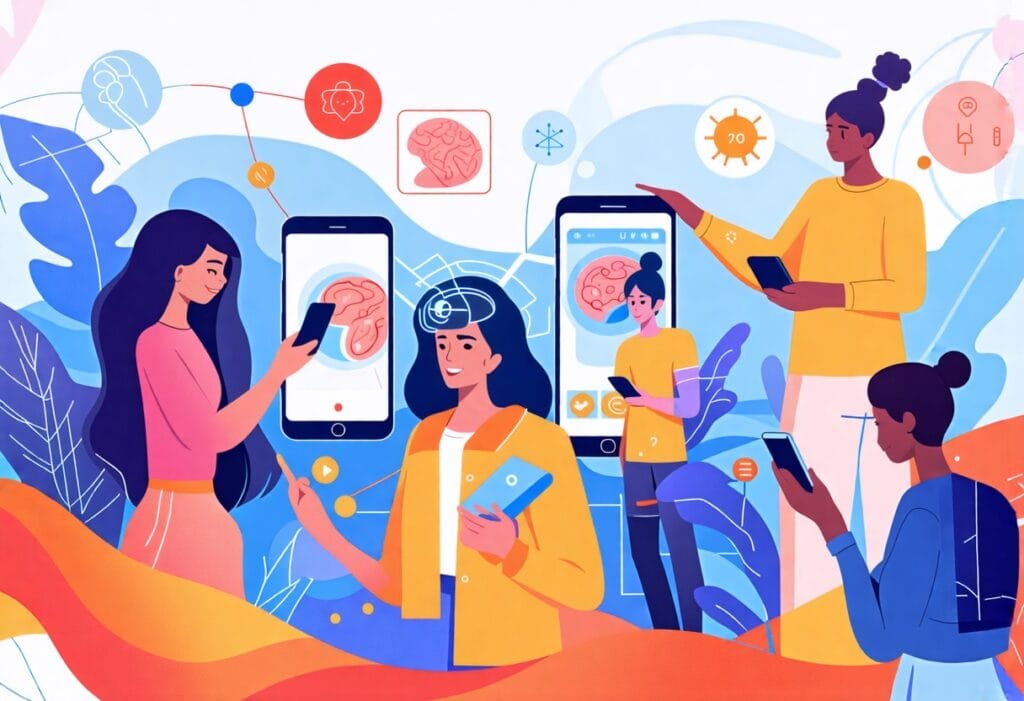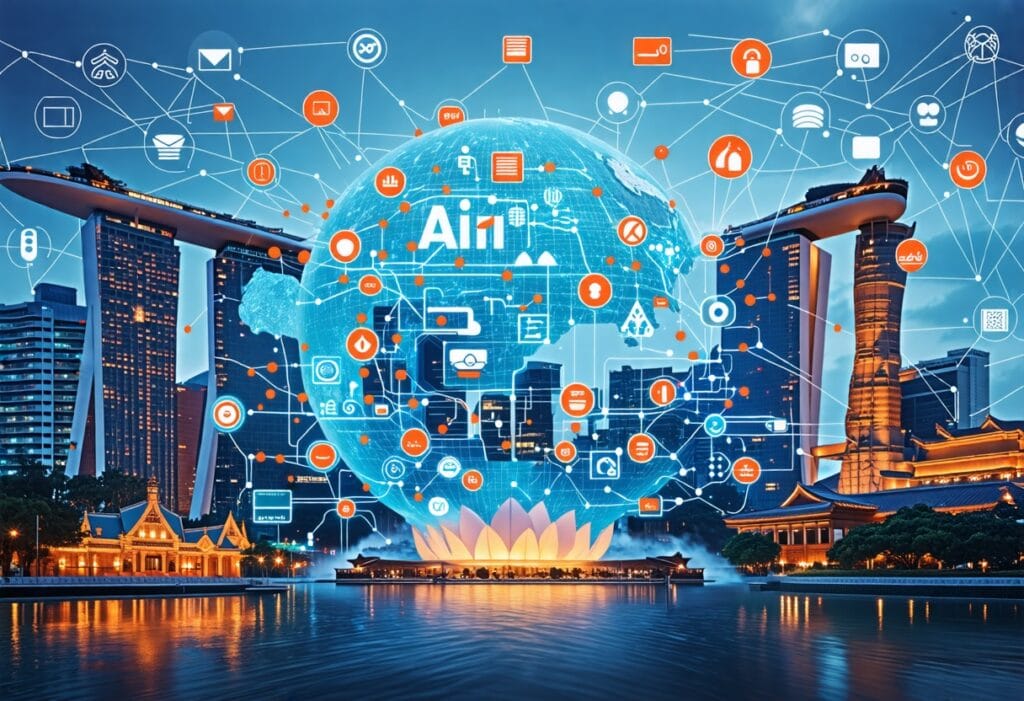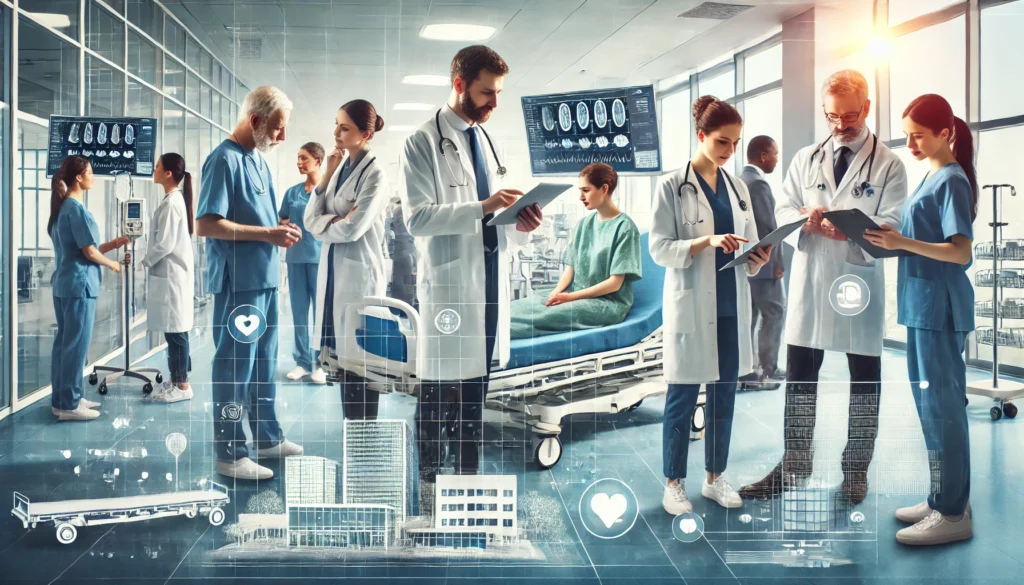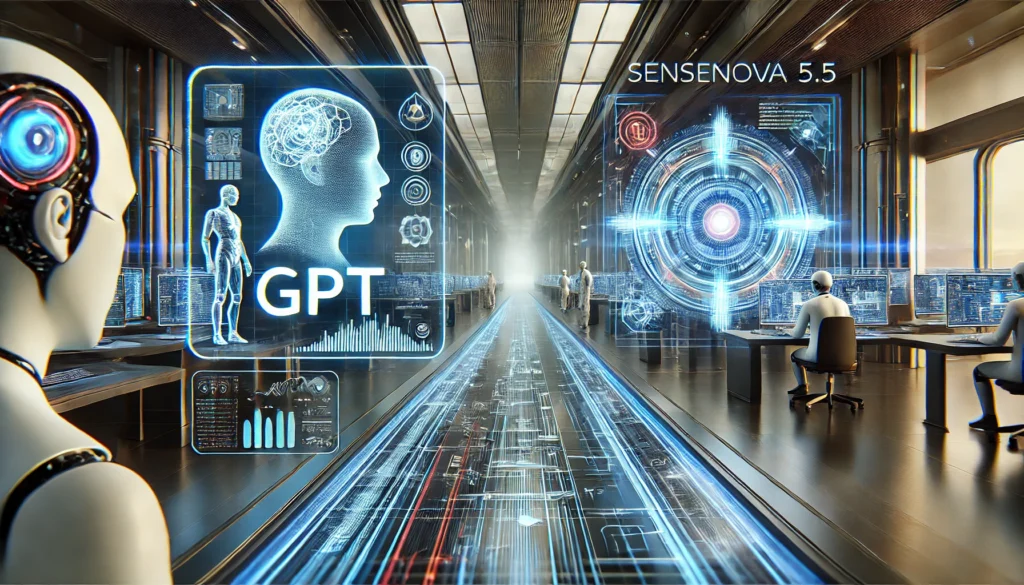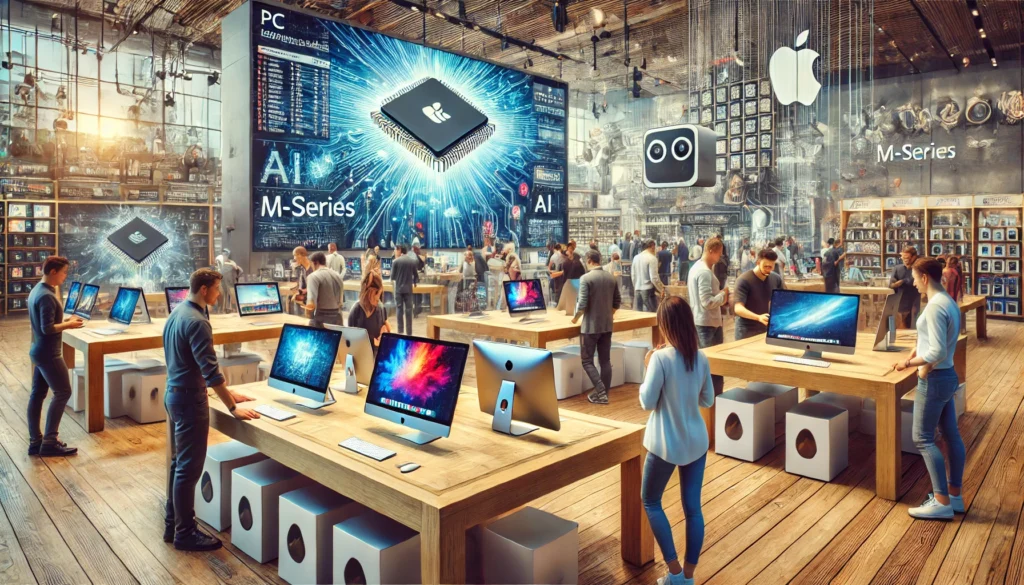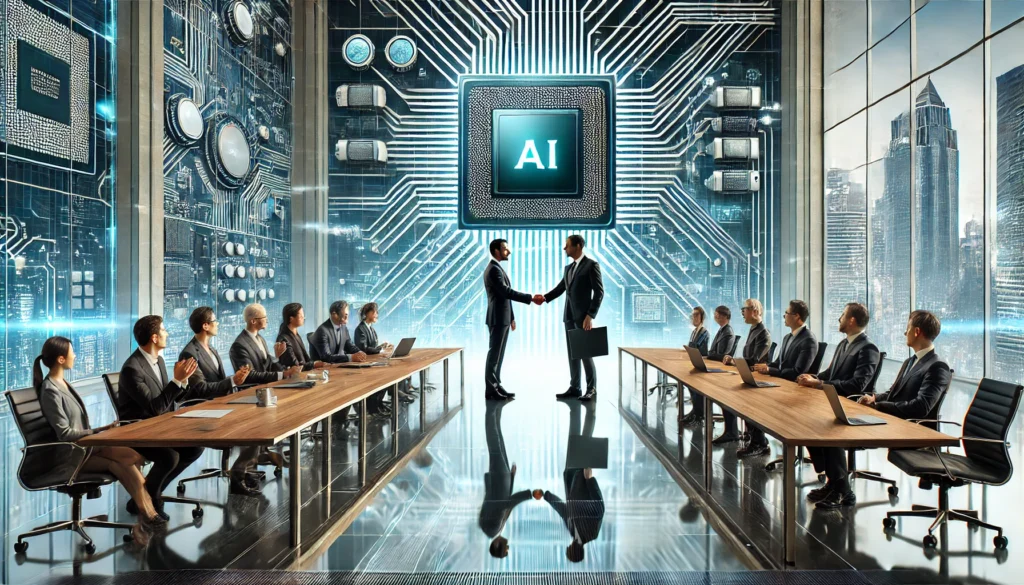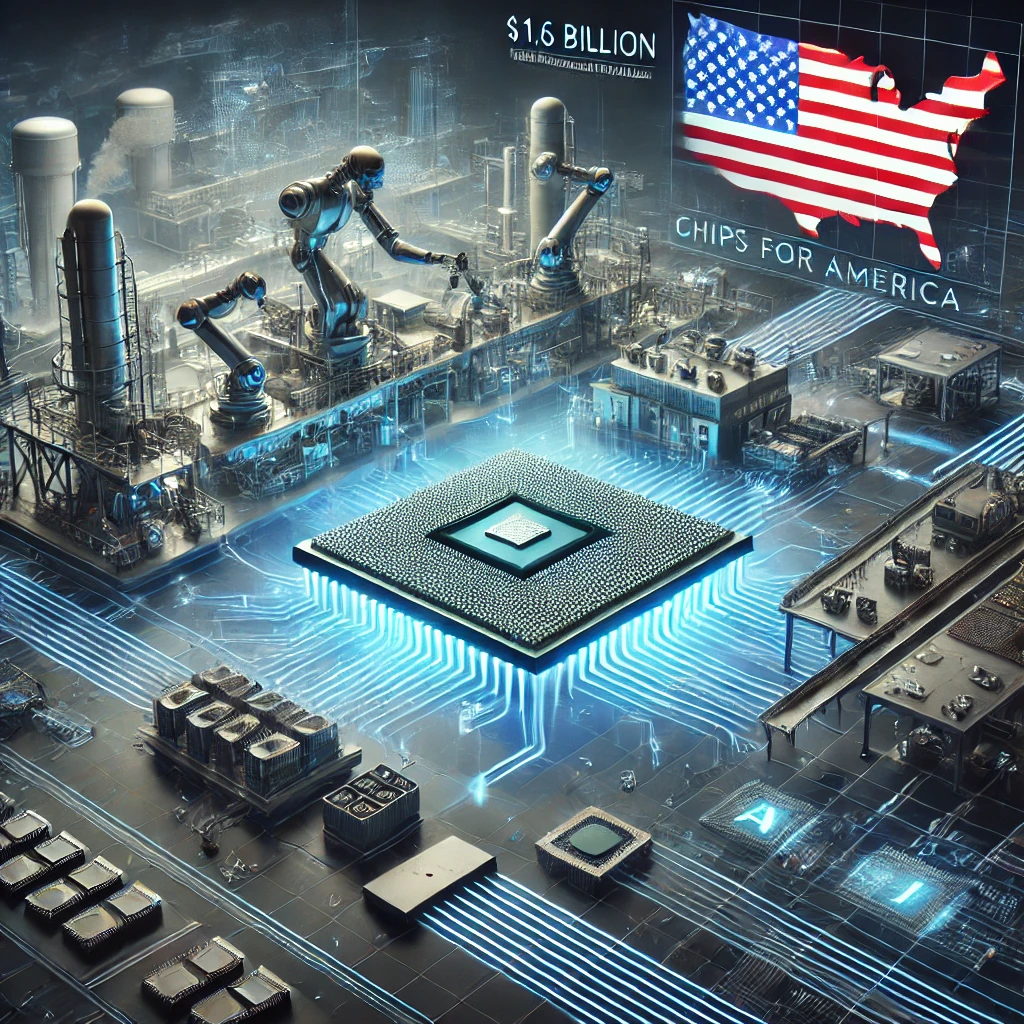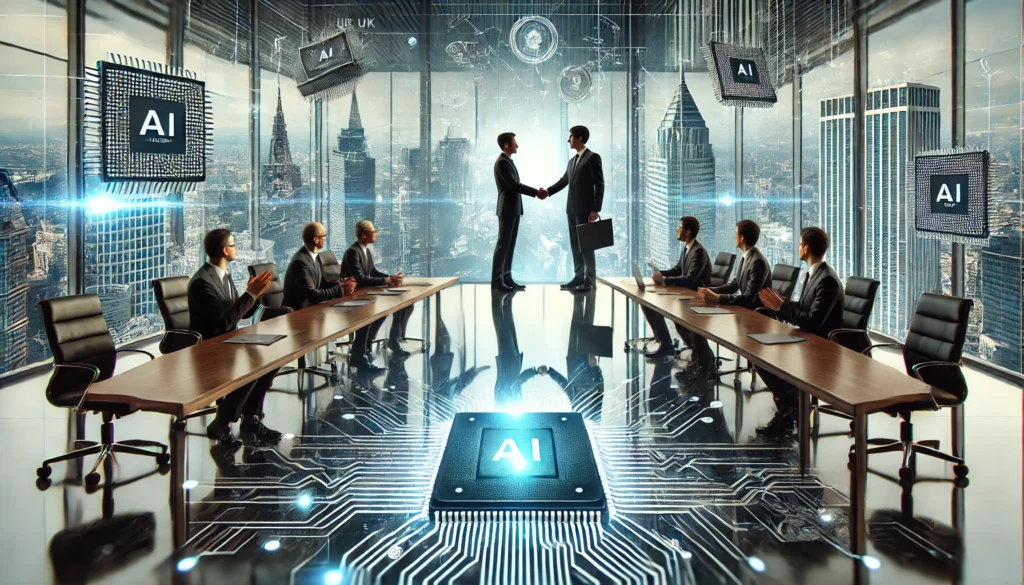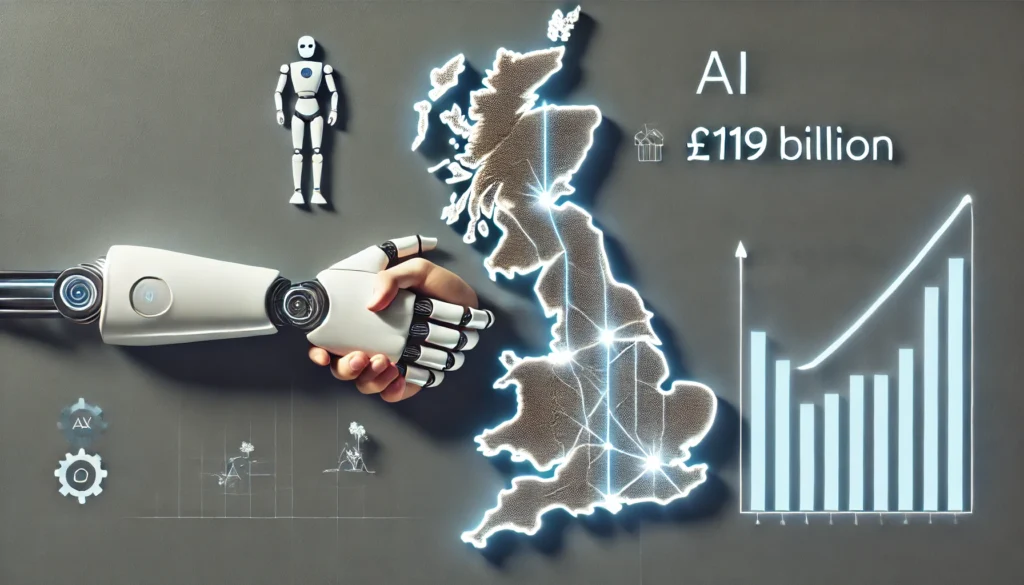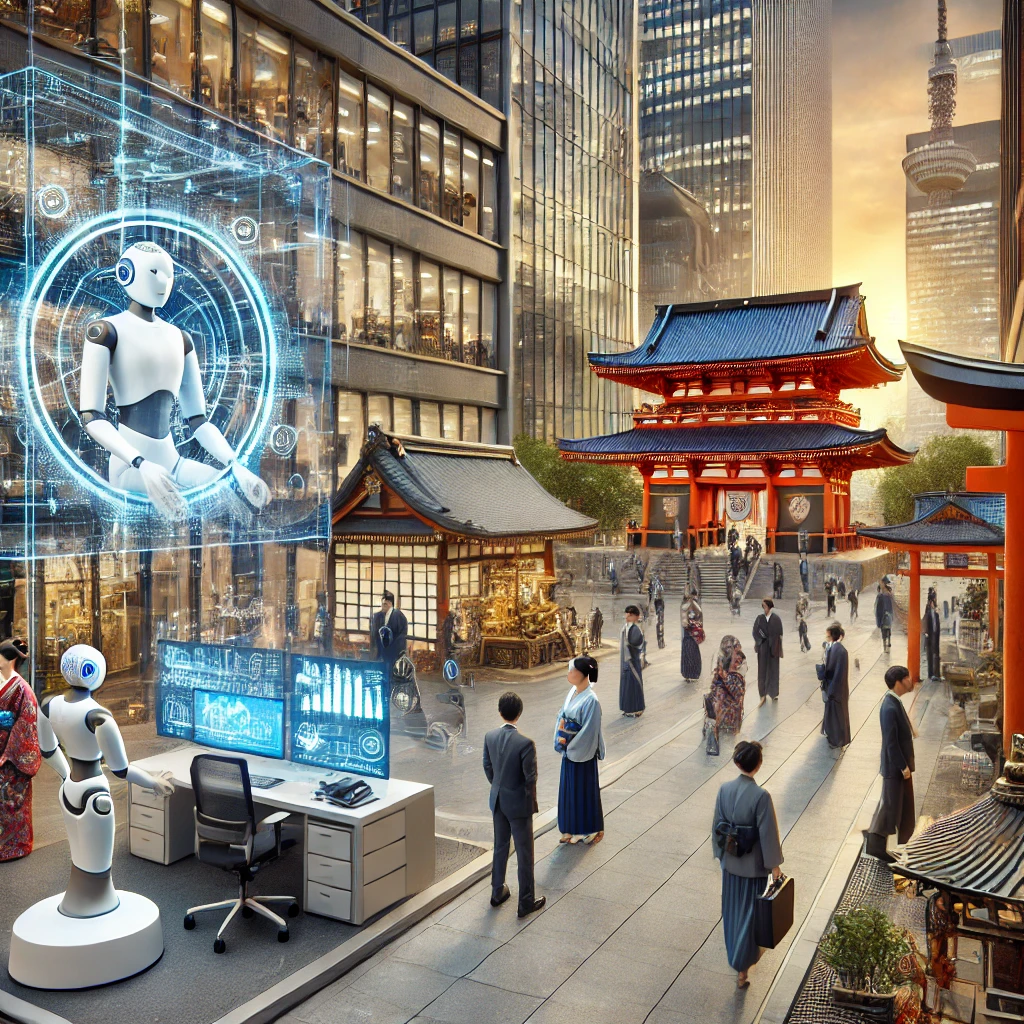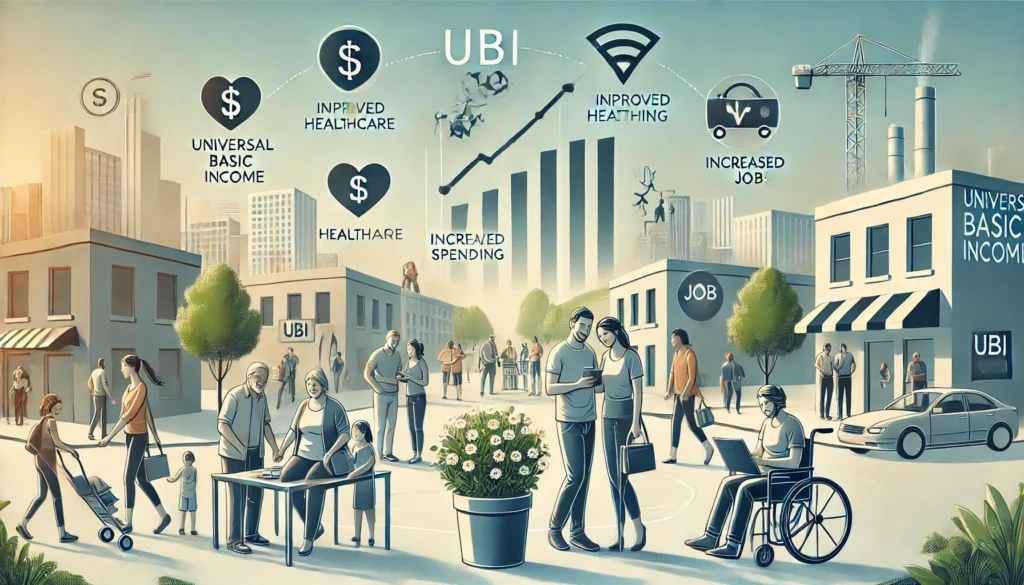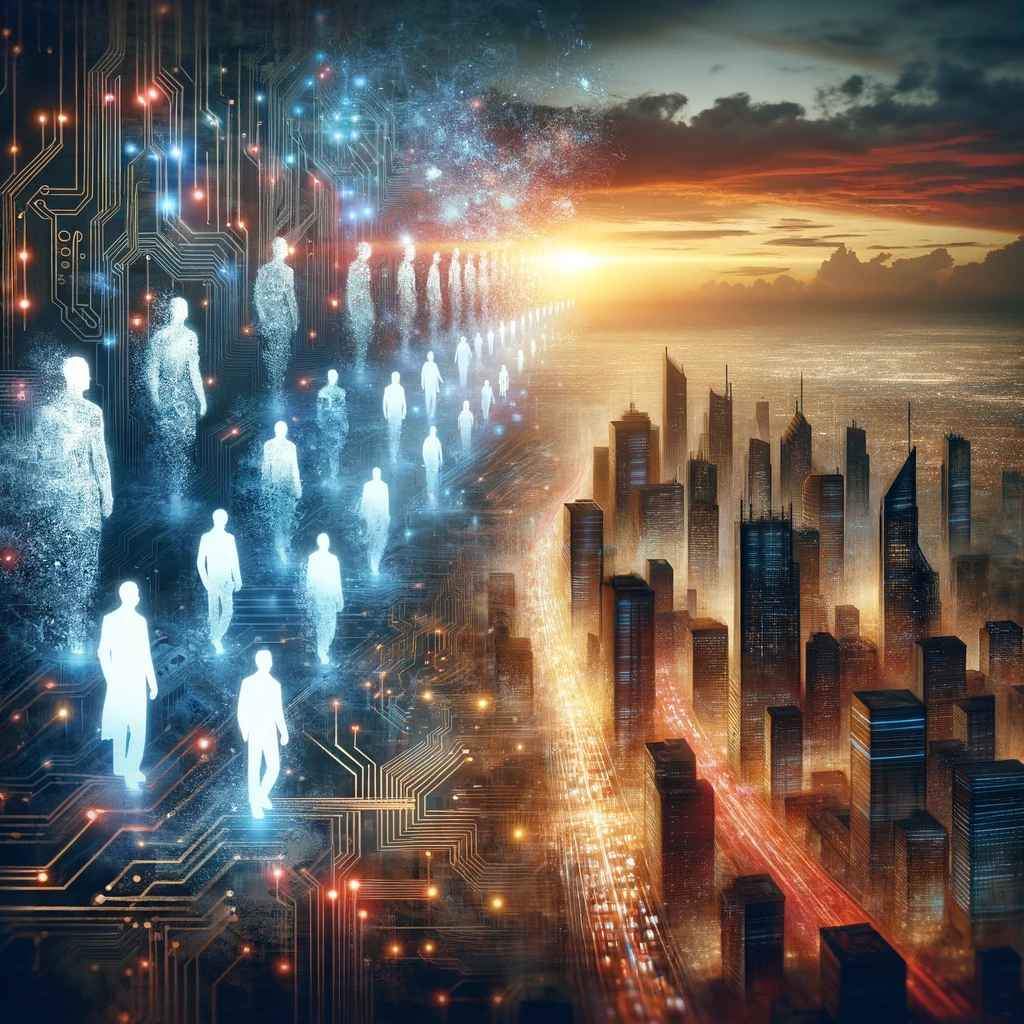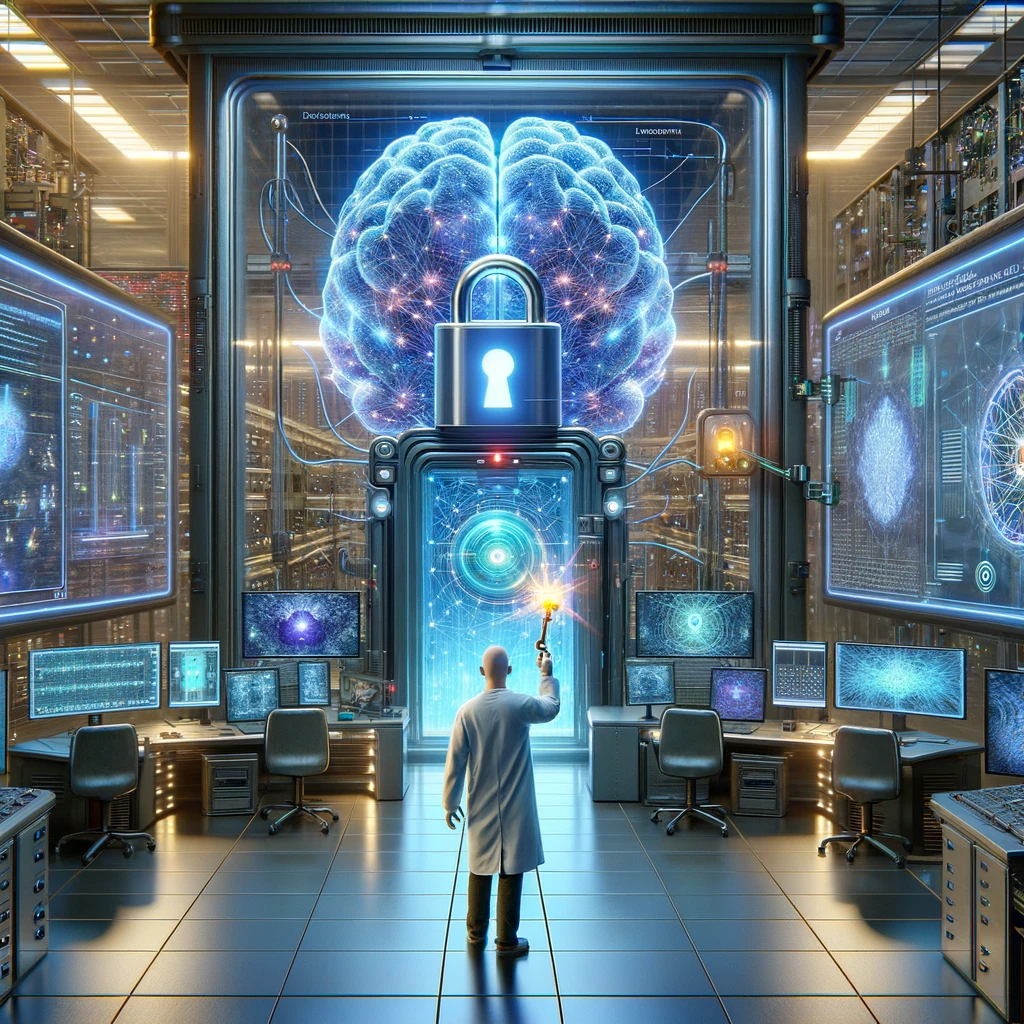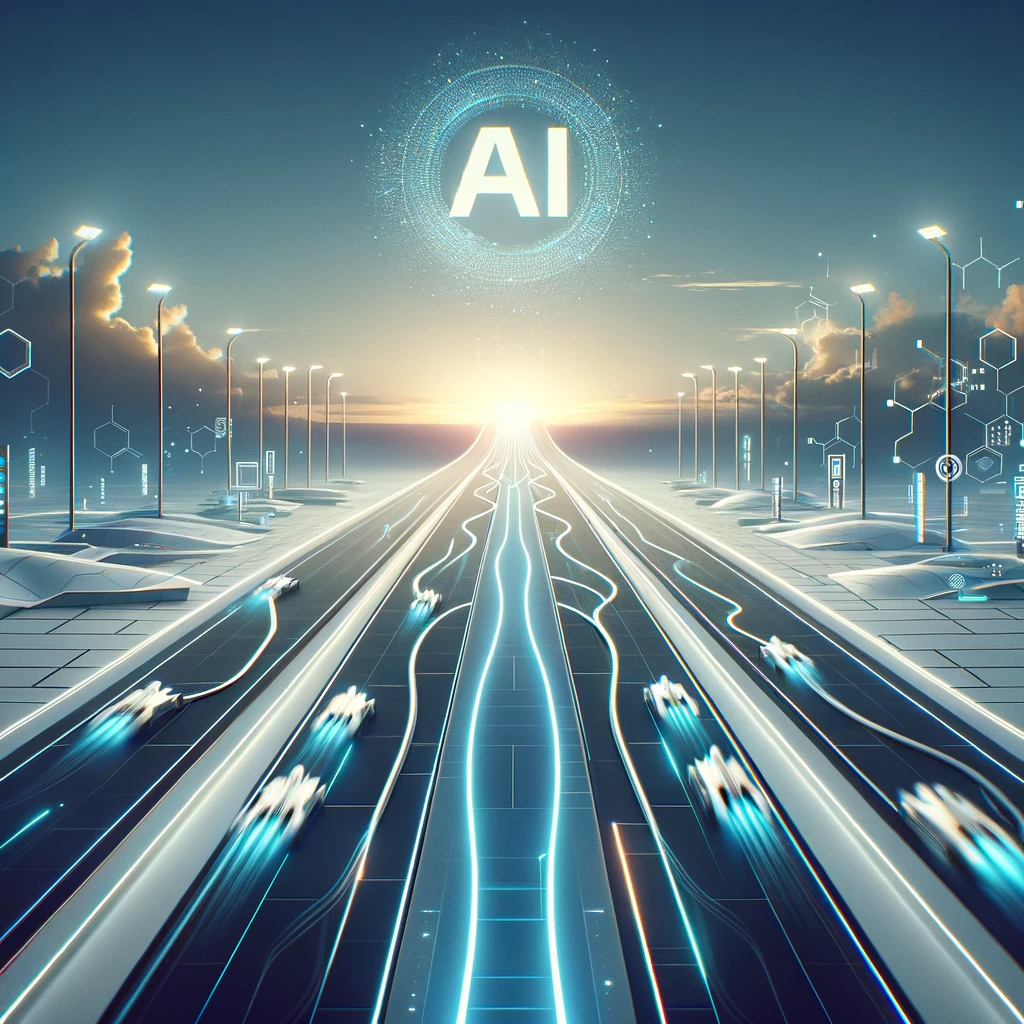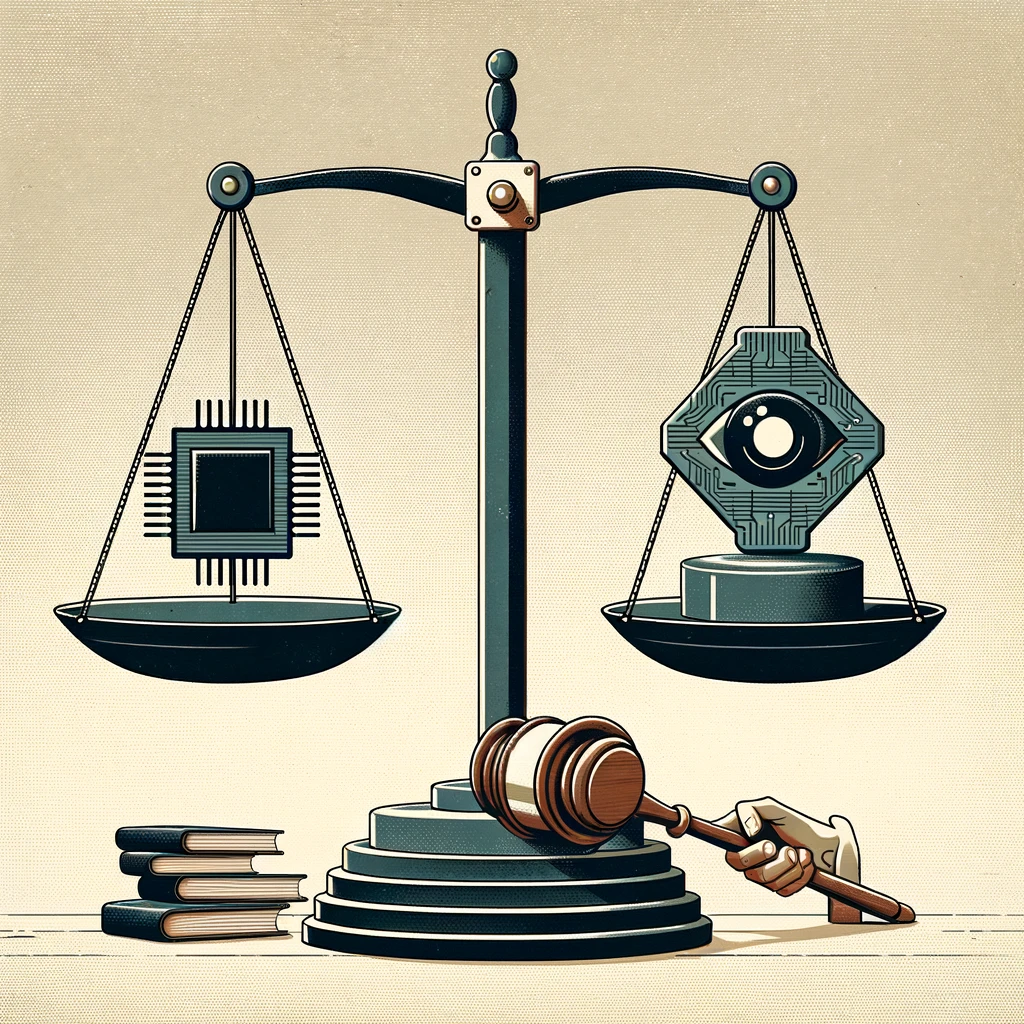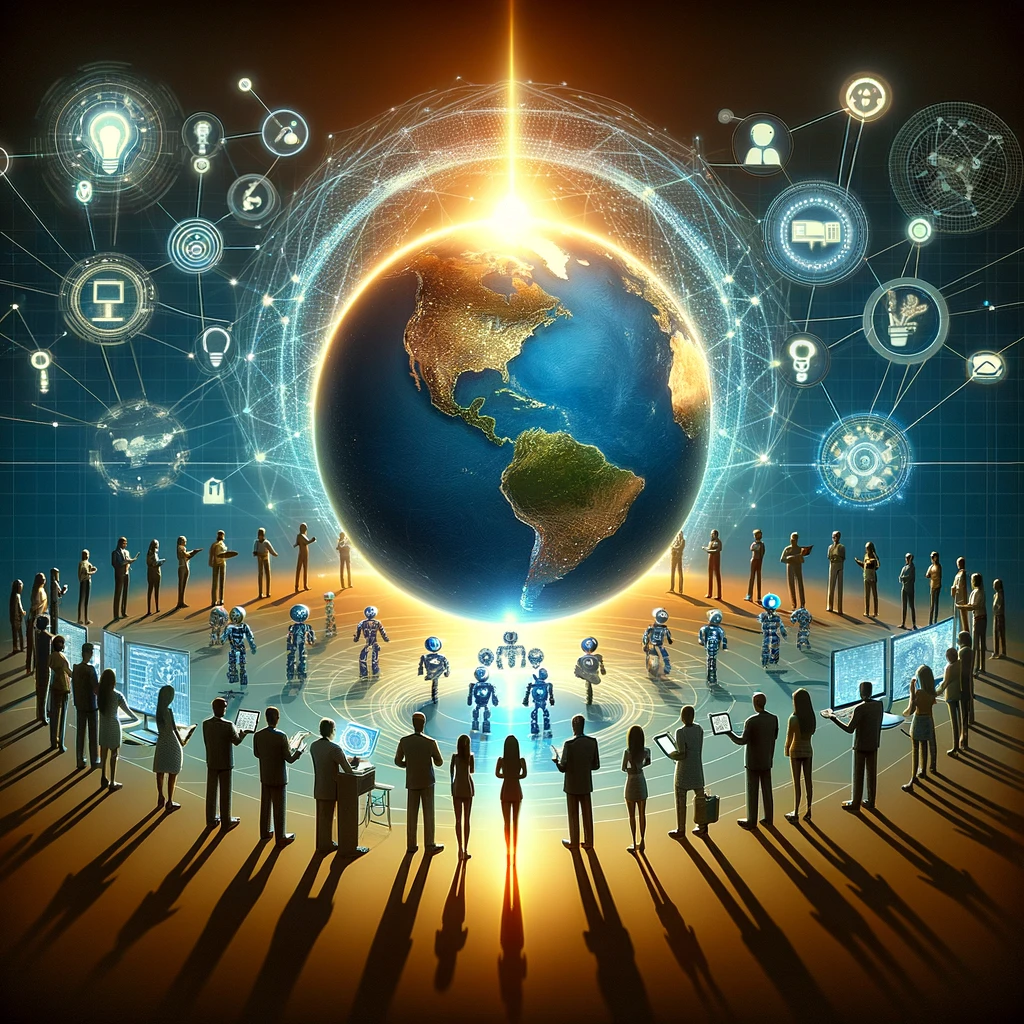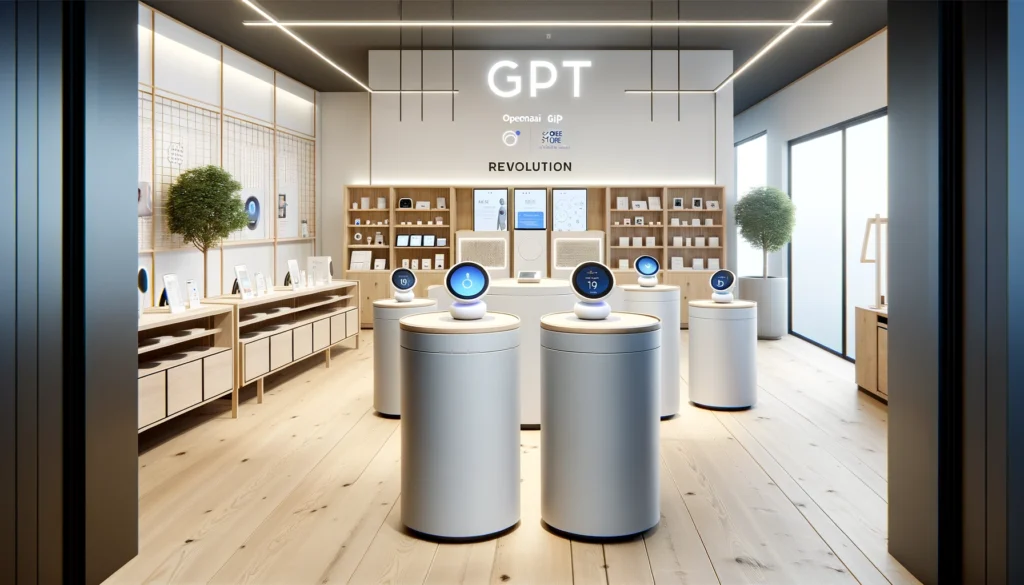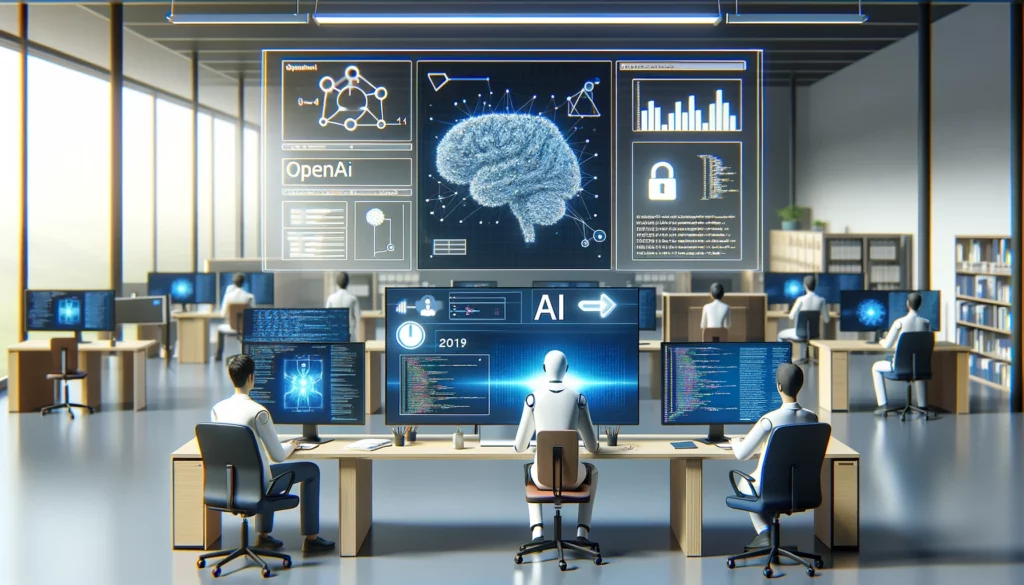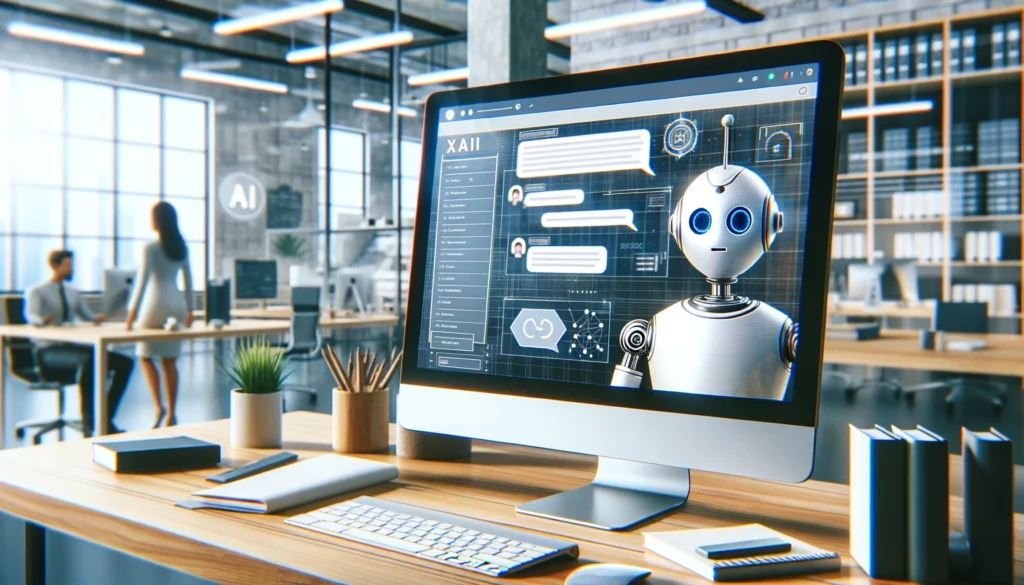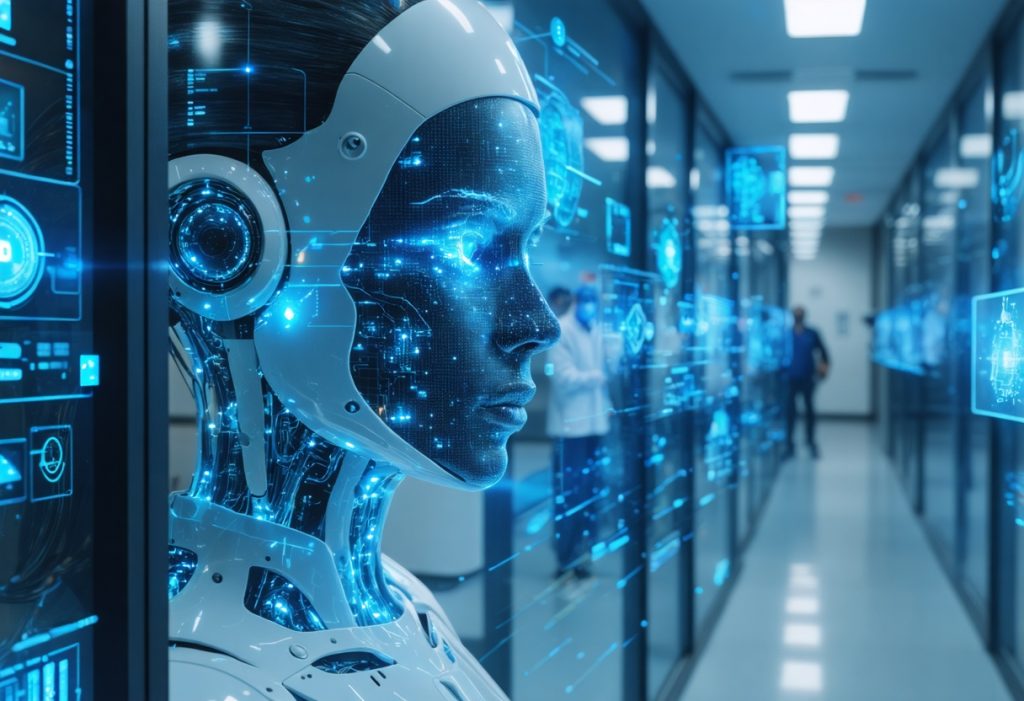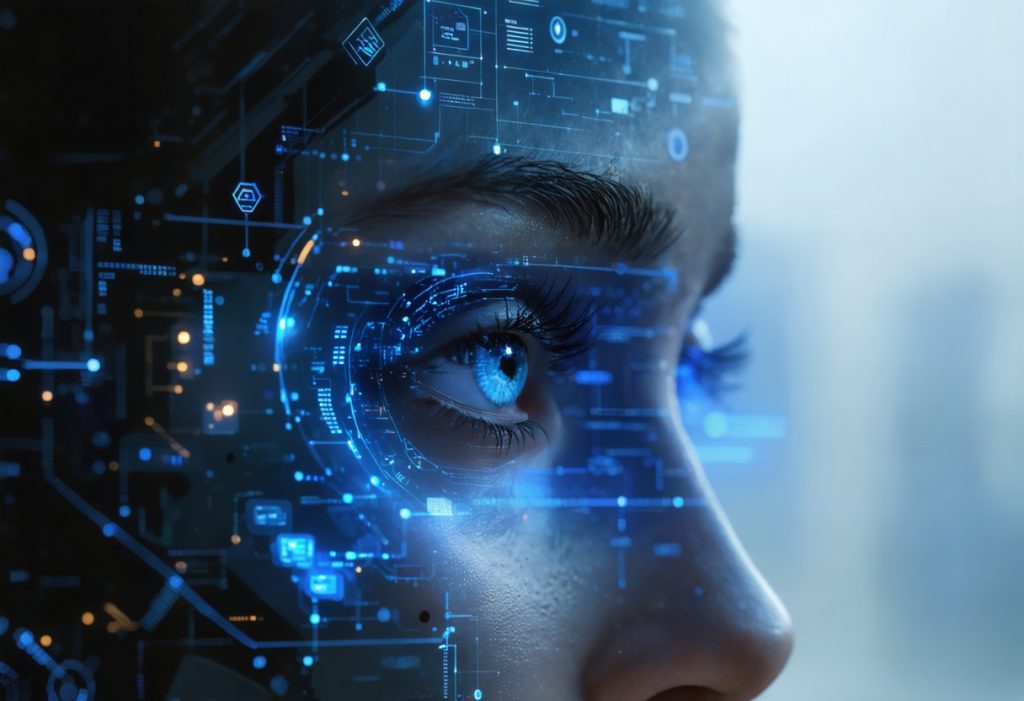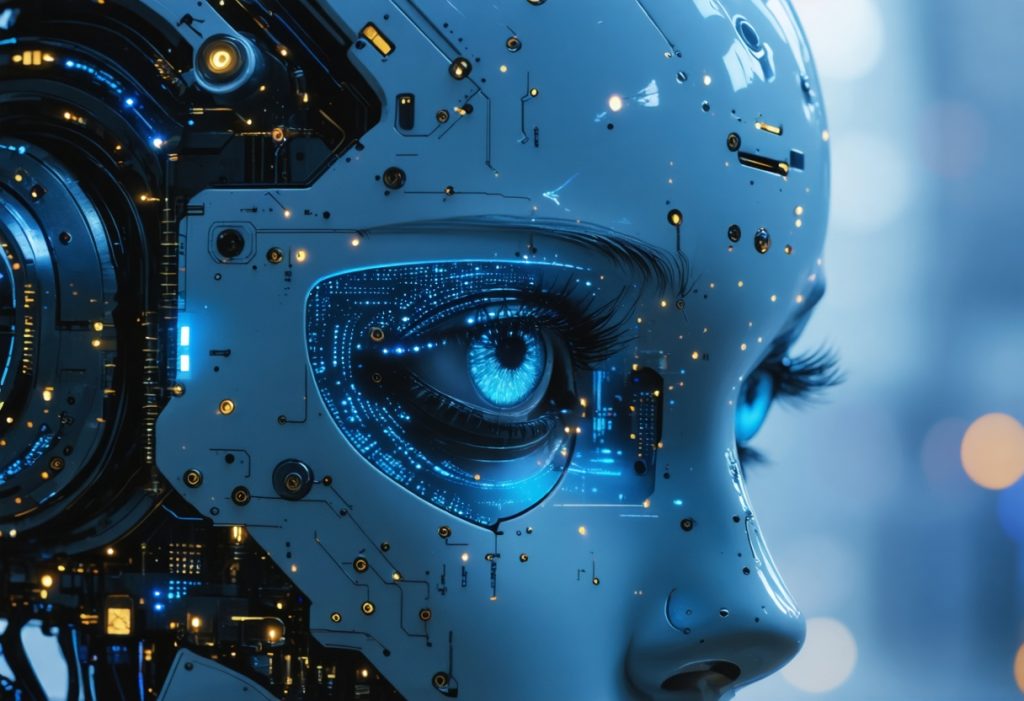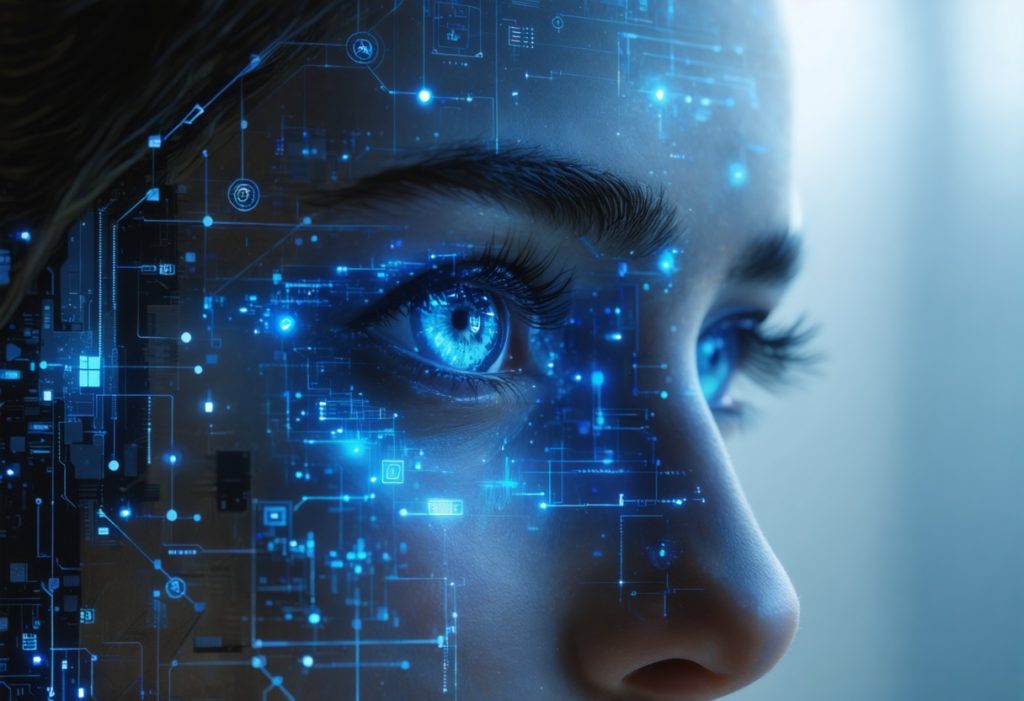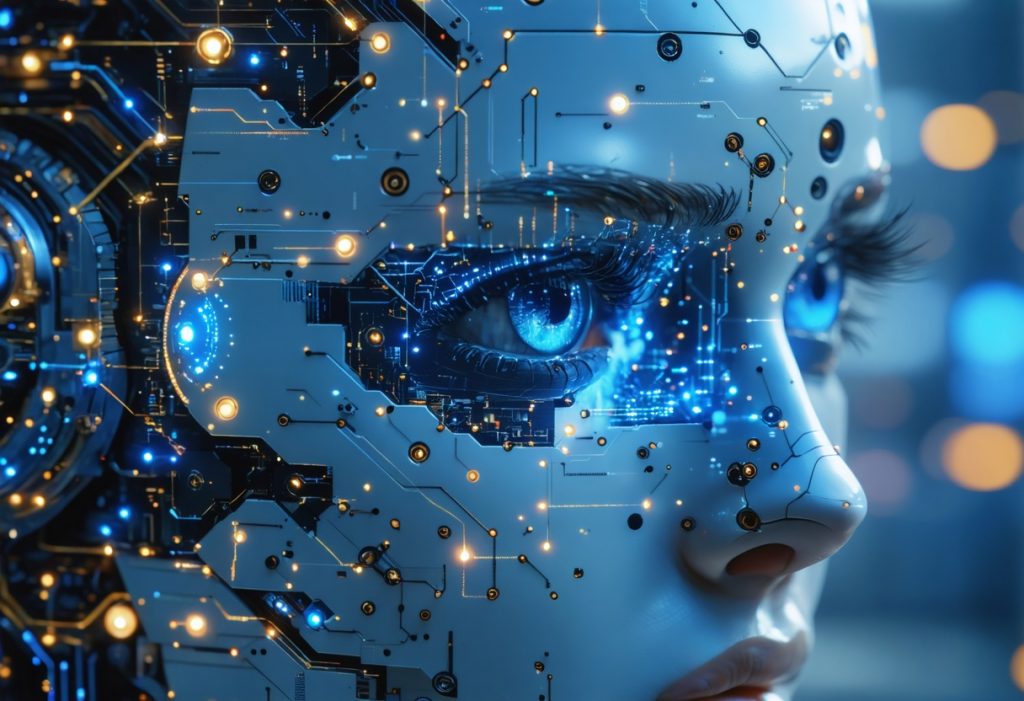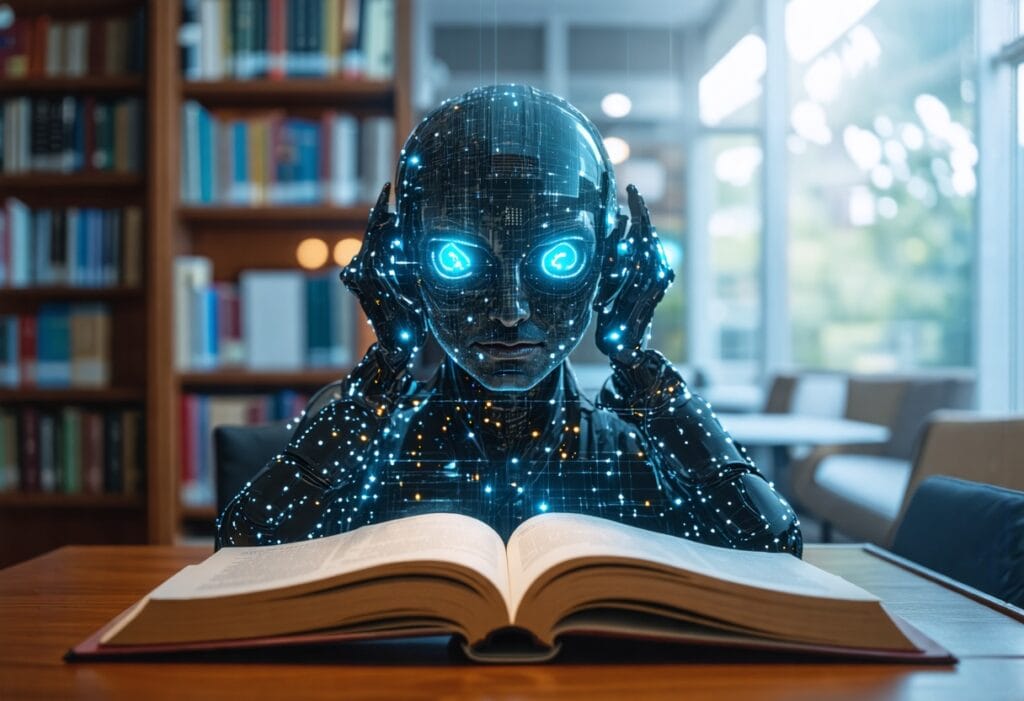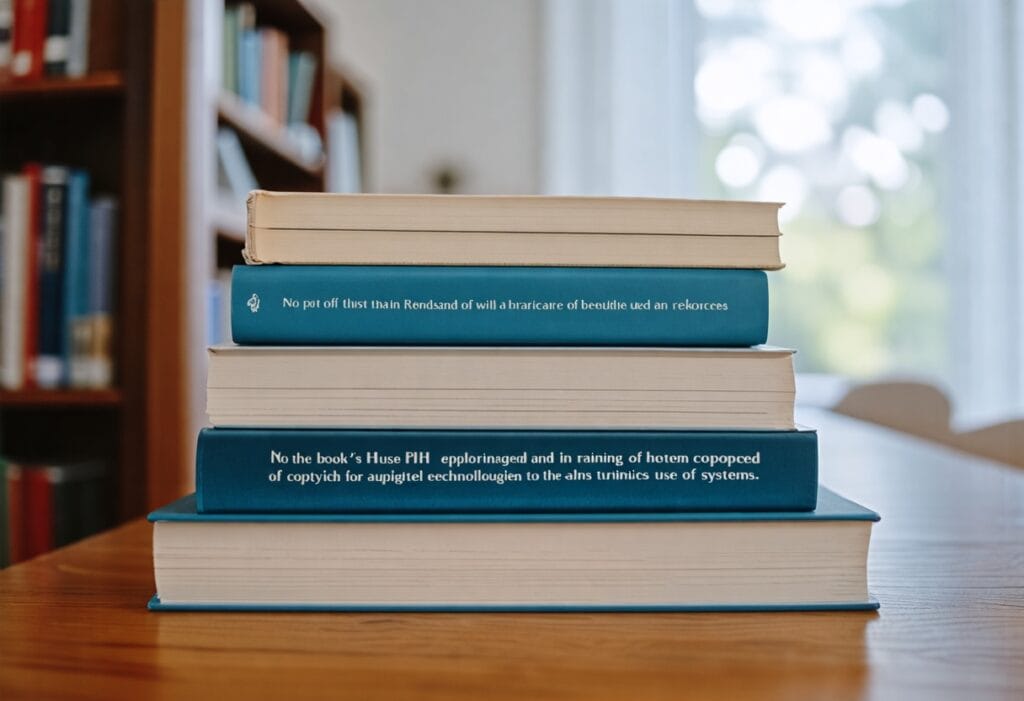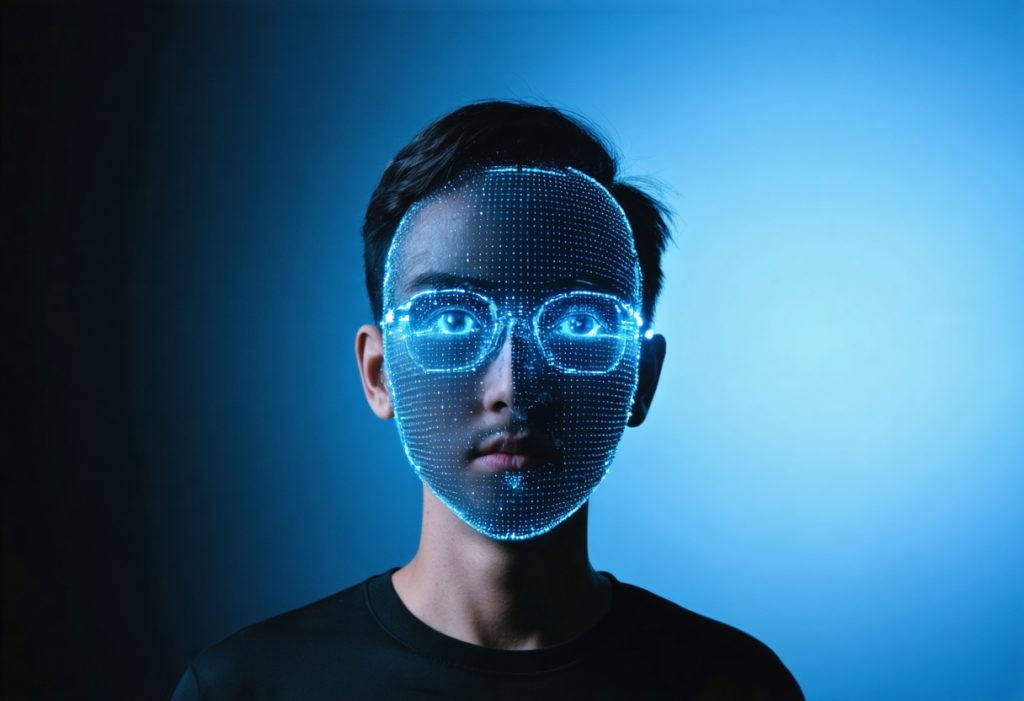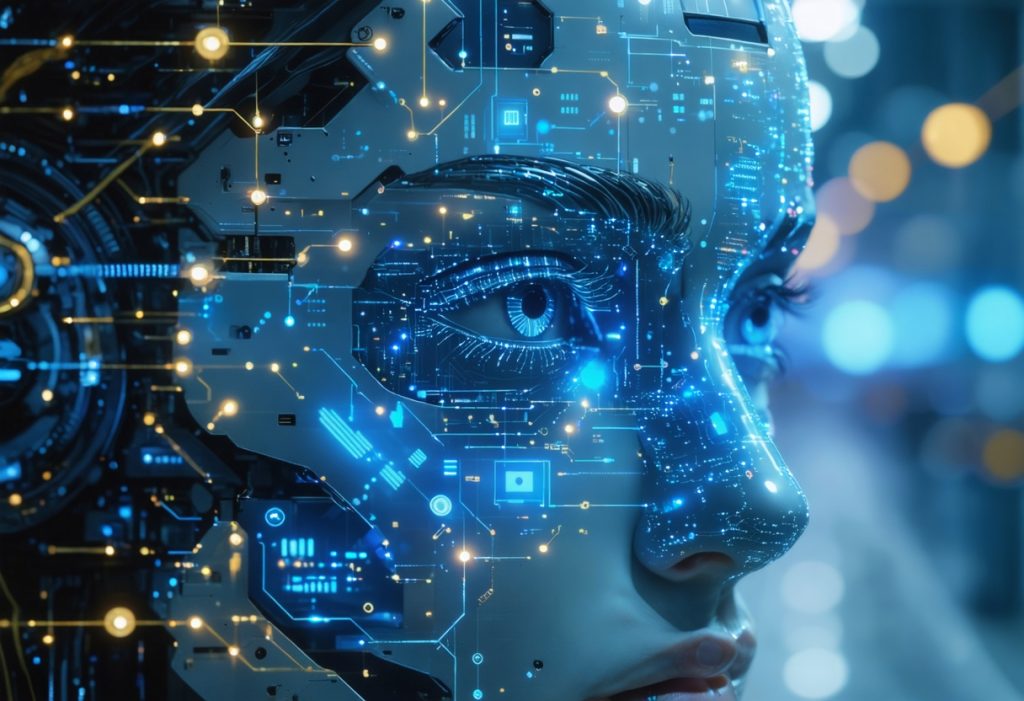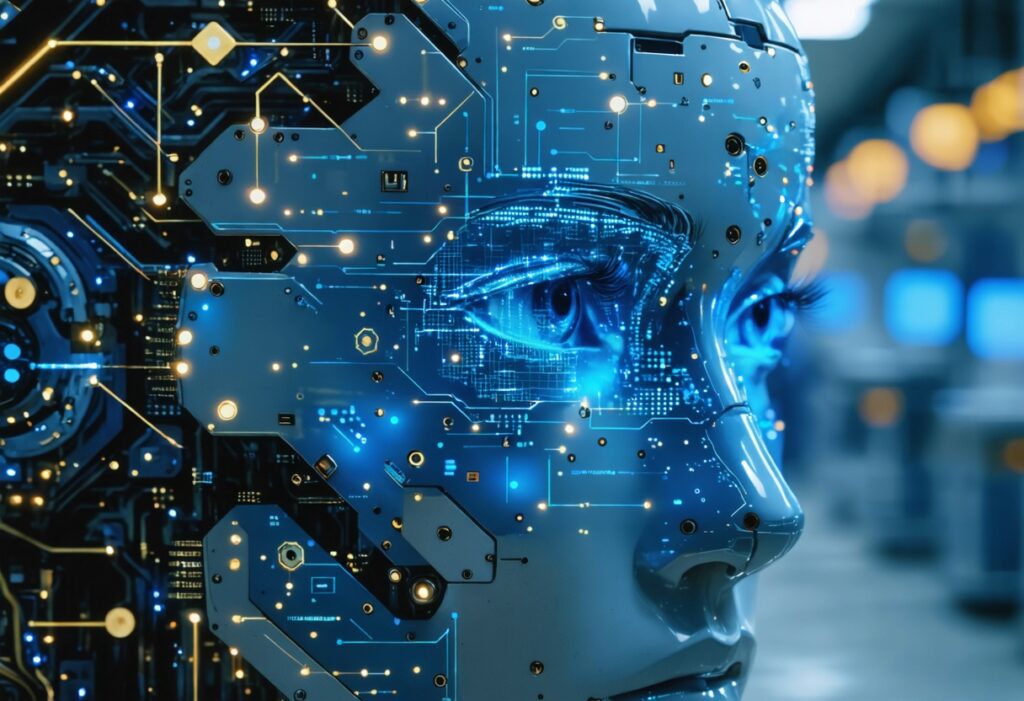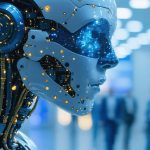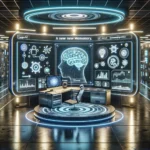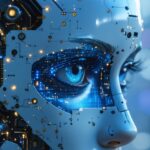The AI Revolution: A Transformative Force Reshaping Our Lives
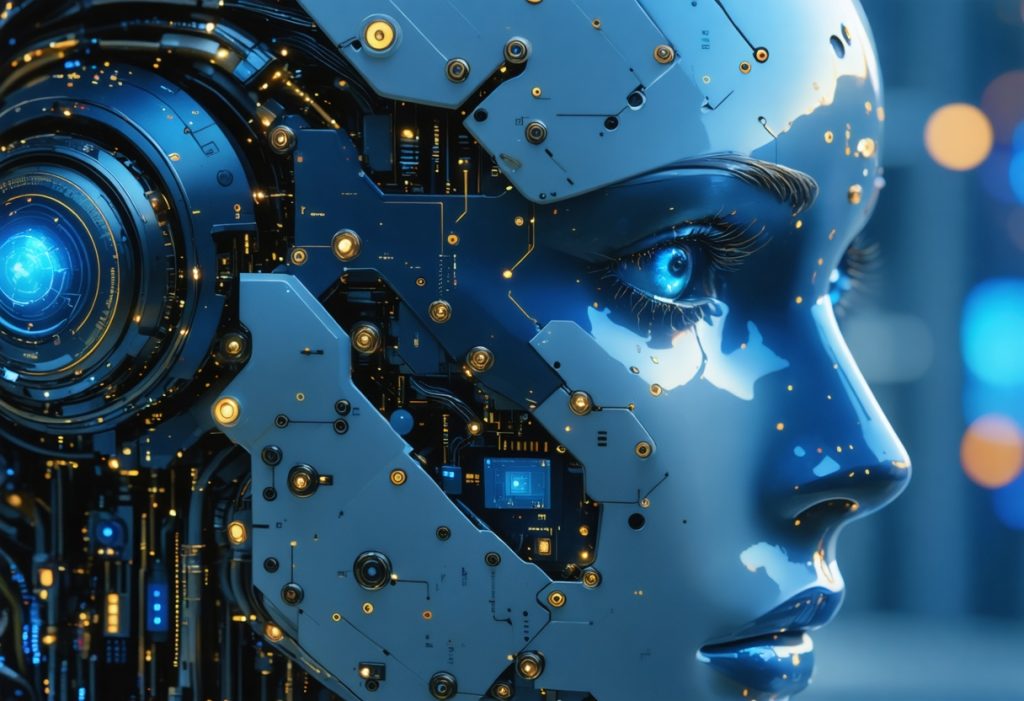
The AI Revolution: A Transformative Force Reshaping Our Lives
The ongoing AI revolution is not just a trend; it is one of the most significant technological shifts reshaping our world today. Over the past few years, artificial intelligence has evolved from mere computation to a pivotal force that is revolutionizing various industries and altering how we interact with technology and each other. With the global AI market projected to balloon from an impressive $638.23 billion in 2024 to a staggering $3.6 trillion by 2034, its potential to enhance productivity and innovation is becoming increasingly undeniable.
In sectors as vital as healthcare, finance, and retail, AI is being harnessed to streamline processes, improve decision-making, and offer personalized experiences. For example, 38% of healthcare providers are already employing advanced AI diagnostic tools, contributing significantly to patient care efficiencies. Moreover, the financial sector anticipates substantial contributions from AI, projected to add around $15.7 trillion to the global economy by 2030. Retailers too are reaping the benefits, with estimates suggesting AI could impact their revenue by $400 billion to $660 billion annually through improved customer interactions.
As AI technology continues to permeate everyday life, it is automating mundane tasks and facilitating more creative endeavors. Innovative solutions like ‘AI twins’ are emerging, fostering personalized assistance in scheduling, communication, and research—liberating individuals from repetitive tasks. Platforms such as Twin Protocol are at the forefront of this evolution, offering secure environments for creating dynamic digital representations that learn and adapt alongside their human counterparts.
As we delve deeper into this article, we will explore the compelling implications of AI’s evolution, from simplifying daily responsibilities to unlocking new realms of potential across various industries. Join us on this journey to understand how AI is not just a tool but a transformative partner, inviting us to rethink the boundaries of what is possible in our lives and work.
The Ongoing AI Revolution: A Transformative Force Reshaping Our Lives
The ongoing AI revolution is reshaping the world, one algorithm at a time. As various industries adopt these advanced technologies, we witness profound changes in how businesses operate and how individuals manage their daily lives. By understanding the intricacies and applications of AI, we can better appreciate its potential to revolutionize our world.
AI in Healthcare: A New Era of Patient Care
Healthcare is one of the sectors experiencing rapid transformation due to AI. With 38% of major medical providers implementing advanced AI diagnostic tools, patients benefit from improved accuracy and efficiency in treatment plans. AI-driven systems can analyze large datasets to predict medical outcomes and assist in personalized treatment strategies. For instance, AI algorithms can detect anomalies in medical imaging with a precision that surpasses traditional methods, allowing for quicker diagnoses and potentially life-saving interventions.
The use of AI doesn’t stop at diagnostics. AI-powered tools for patient management help healthcare providers track patient histories without overwhelming healthcare professionals with administrative tasks. Moreover, AI systems are capable of analyzing patient responses to medications and predicting future health risks, thus refining preventative care approaches.
A Financial Transformation: AI in Banking and Investment
AI is poised to significantly impact the finance sector, with projections indicating an addition of approximately $15.7 trillion to the global economy by 2030. Banks and financial institutions leverage AI for everything from fraud detection to customer service automation. Machine learning algorithms can identify irregular transactions in real time, enhancing security measures and protecting consumers.
Furthermore, AI assists in investment strategies through predictive analytics. By sifting through vast amounts of market data and trends, AI tools can offer market predictions with impressive accuracy, enabling investors to make informed decisions. Robo-advisors, powered by AI, provide personalized investment advice based on individual risk profiles and financial goals, democratizing wealth management services for the average consumer.
Retail Revolution: Enhancing Customer Experience through AI
The retail industry is undergoing a significant overhaul, thanks to AI integration. It’s estimated that AI could positively affect retail revenue by as much as $660 billion annually. Retailers use AI to analyze consumer behavior, optimize inventory management, and personalize shopping experiences. AI systems analyze purchasing patterns to recommend products suited to individual customer preferences, thus enhancing customer satisfaction.
Moreover, AI-powered chatbots and virtual assistants have revolutionized customer service. Available 24/7, these tools provide immediate assistance, answering queries, resolving issues, and even processing returns, which streamlines operations for retail businesses. AI also plays a crucial role in supply chain management by predicting stock levels and identifying potential disruptions, helping retailers maintain a seamless flow of goods.
AI Twins: Personalizing Everyday Life
AI is not just reshaping industries but is also transforming personal life management. The concept of ‘AI twins’ or digital twins is gaining traction, allowing individuals to manage various aspects of their lives more effectively. These AI entities assist with scheduling, email management, conduct research, and even offer insights into personal productivity.
Platforms like Twin Protocol are pioneering this field by creating secure environments where users can develop their digital twins. These digital representations actively learn from user interactions, enabling them to adapt over time. Imagine having a personalized assistant that not only understands your preferences but can also manage intricate schedules, suggest improvements, and facilitate better decision-making.
AI and Cybersecurity: Protecting Our Digital Assets
In an era where data breaches and cyber threats are becoming increasingly sophisticated, AI plays a critical role in enhancing cybersecurity measures. AI-driven intelligent security technologies are expected to grow by 23.6% by 2027, providing businesses and individuals with advanced tools to protect their digital assets. AI systems analyze patterns and anomalies in network traffic, enabling them to detect and respond to potential threats in real time.
Moreover, AI can automate the monitoring of systems, making it easier to identify vulnerabilities before they can be exploited. Machine learning algorithms continuously improve their threat detection capabilities by learning from historical attack patterns, thus enhancing overall security posture.
The Future of AI: Uncharted Territory
The potential of AI is still largely uncharted. As emerging technologies like digital twins become more prevalent, we can expect AI to evolve from mere operational assistance to a transformative partner in various fields. Beyond enhancing productivity, AI has the ability to facilitate creative problem-solving, personalized education, and optimization in industrial processes.
For instance, personalized education using AI can adapt learning curriculums based on individual student performance, catering to their strengths and weaknesses. In manufacturing, AI can optimize production lines by predicting equipment failures and managing supply chain logistics, resulting in increased efficiency and reduced costs.
AI and Individual Agency: The Importance of Data Privacy
With the rise of AI technologies, concerns regarding individual agency and data privacy are paramount. Platforms like Twin Protocol emphasize the importance of maintaining user control over their own data. By employing blockchain technology, these platforms ensure that personal information remains secure and that individuals retain agency over their digital identities.
This paradigm shift is crucial as we transition into an AI-driven world where personal data becomes increasingly leveraged. Ensuring that individuals can safeguard their privacy while benefiting from AI innovations is essential for building a sustainable ecosystem where technological advancements can flourish without compromising ethical standards.
In sum, as we navigate through the AI revolution, it is evident that this technology is more than just a trend. It represents a fundamental shift in our interactions with the world, enhancing efficiency, personalizing experiences, and redefining the boundaries of what is possible.
Embracing the AI Revolution: A Look Ahead
The AI revolution is a transformative force that is fundamentally changing how we live, work, and interact with the world around us. As artificial intelligence continues to penetrate various sectors—from healthcare and finance to retail and personal management—it is imperative to recognize its vast potential in enhancing our lives and driving economic growth. By streamlining processes, improving decision-making, and personalizing user experiences, AI is setting the stage for unprecedented advancements across industries.
As we move forward, it is essential to remain vigilant about the implications of AI, especially concerning data privacy and individual agency. With the right safeguards in place, such as blockchain technology and user-centric platforms, we can ensure that the benefits of AI proliferation do not come at the expense of our personal privacy and autonomy.
In this rapidly evolving landscape, embracing AI as a partner in progress invites a new era of innovation and creativity. The possibilities are endless, and by leveraging the strengths of AI responsibly, we can unlock new avenues for growth and development. As we stand on the brink of this technological frontier, individuals and organizations alike must adapt, learn, and experiment to harness the full potential of AI, paving the way for a future that is as imaginative as it is efficient.
